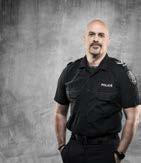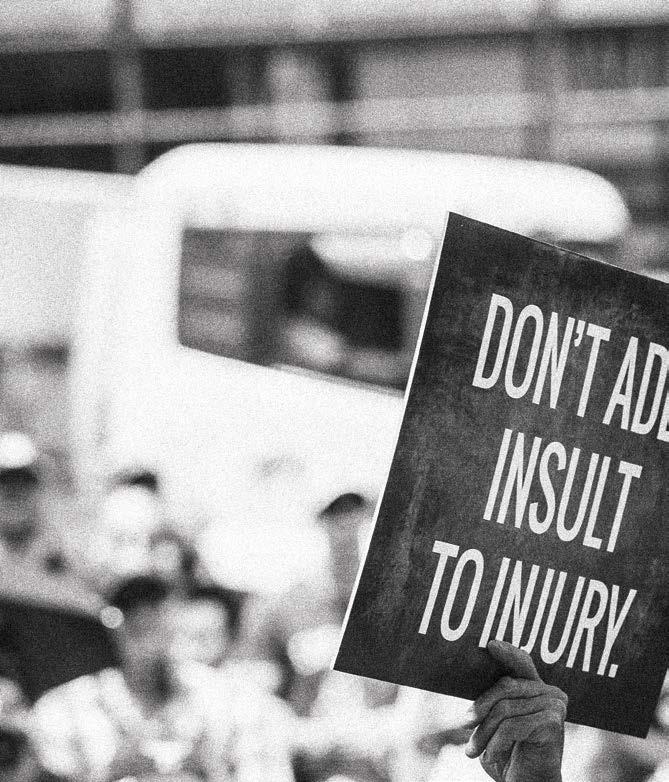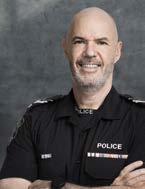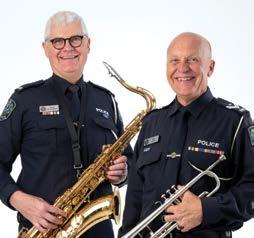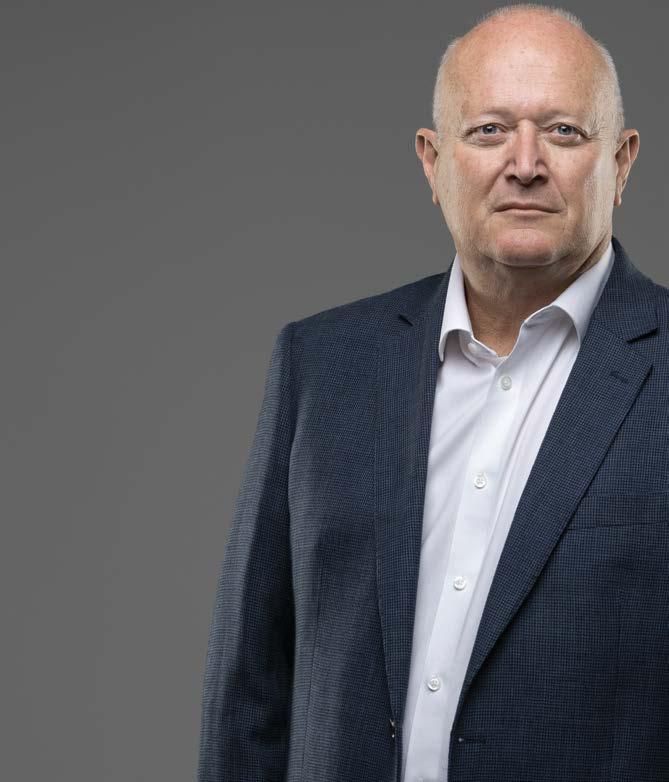
“On bad days, I go to bed and basically just lie in the foetal position waiting for the medication to kick in.”


“On bad days, I go to bed and basically just lie in the foetal position waiting for the medication to kick in.”
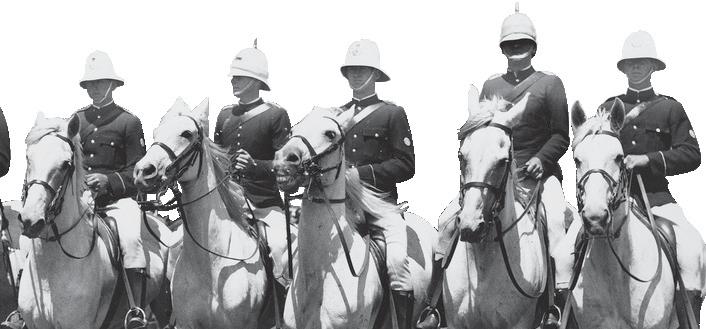


It all began back in 1935. A group of South Australian police decided to pool money to cover the medical needs of colleagues and their families, because police work was, is, and will always be like no other, requiring protection like no other insurance company offered.
What started as a small, state-based private health insurer, now covers more than 100,000 members of the police and emergency services community, Australia wide. Every day of those 90 years, with healthcare and member needs evolving significantly, the Police Health spirit remains unchanged.
A high-quality, value-for-money private health insurance, designed by police, for police and emergency services, and always putting our members and their families’ needs first.
Of course, the true value of Police Health is only really understood when it comes time to make a claim.
Police Health member T Bear shared his experience with a sudden cancer diagnosis.
“From being an active, well person and only needing things like physiotherapy, to getting blood cancer requiring a stem cell transplant, Police Health has been there for me,” he said.
“(I’ve) had more hospital admissions than I can count, including ICU, surgeries, hundreds of blood tests, and nursing care at home – it has all been covered by Police Health. When you are fighting for your life, it is good to know that you have the best health cover – and Police Health is just that – the best!”
Long-term Police Health member, Robyn Holthouse, commented: “In sickness and in health, Police Health looks after us. I have been a member since 1997. From then until now, my dealings with Police Health have always been positive. I brag about my health fund that it is the best there is.”
Another member, KarenAnn, who is a single mum and has been with Police Health for 50 years, has said: “I don’t have a husband now, but I have Police Health thankfully. Such great value and easy to claim just using a card.”
While Stephen, a member for the past 57 years, commented that he’s “proud to be a member of the best health fund in Australia! I've been a member since 1968, and if there is one thing that stands out it is when I used a medical service and tell the provider we're with Police Health, they all respond with replies that imply the same thing... we're fortunate that we're (with) the best health fund available.”
For the countless long-term members, the health professionals who proudly recommend Police Health, and the many lives (and life savings) the fund has helped, the 90-year milestone is truly a shared celebration.
To share your experiences and thoughts about Police Health to honour 90 years, please visit: https://www.productreview.com.au/listings/police-health

Sergeant Michael Hutchinson will not soon, or ever, forget the night of the Senior shooting incident which cost Brevet Sergeant Jason Doig his life. Had the ambush attack played out any differently, with any more lethality, the wounded Hutchinson might have lost his life as well.
His journey back to normality over the past two years has been tough, sometimes unnecessarily so, and remains incomplete. In our exclusive interview with him, he speaks of friends and other “wonderful” people who supported him throughout his recovery
But when he described how he felt about the treatment he received from SAPOL, he used words like “betrayed” and “bullied” In the end, he explained why he undertook our interview and outlined how his “life purpose” connects directly with Jason Doig
As Police Remembrance Day approaches (September 29), the police community prepares to honour the fallen and members begin to reflect on individuals Naturally, recent deaths, like that of Jason Doig, remain clear in the collective memory of police.
But so too do deaths further in the past, like that of Senior Constable David Barr, murdered in a stabbing attack in 1990. Chief Inspector Andrew McCracken has come up with a special tribute concept to honour him and gave us the details
Police Association assistant secretary Steve Whetton reveals a case of extreme SAPOL overreach which demands the supply of members’ private medical information
Dr Rod Pearce looks at the effects of fatty liver disease; lawyer Sam Michele explains how easily things can go wrong in the process of conveyancing; Jim Barnett road-tests the Mazda all-hybrid CX-80 SUV and Toyota Prado VX
Police Association president Wade Burns pulls no punches in his analysis of the damning results which came out of the latest member survey.
Brett Williams
brettwilliams@pj asn au
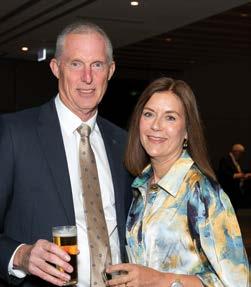
Publisher: Police Association of South Australia Level 2, 27 Carrington St, Adelaide SA 5000 T (08) 8212 3055 Editor: Brett Williams (08) 8212 3055 Design: Sam Kleidon 0417 839 300
Advertising: Police Association of South Australia (08) 8212 3055
Printing: Finsbury Green (08) 8234 8000
The Police Journal is published by the Police Association of South Australia, 27 Carrington St, Adelaide, SA 5000, (ABN 73 802 822 770). Contents of the Police Journal are subject to copyright. Reproduction in whole or in part without written permission of the Police Association of South Australia is prohibited. Opinions expressed are not necessarily those of the editor. The Police Association accepts no responsibility for statements made by advertisers. Editorial contributions should be sent to the editor (brettwilliams@pj.asn.au).
COVER: Sergeant Michael Hutchinson. Photography by Steve McCawley.
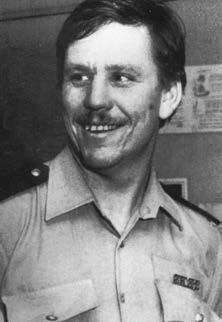
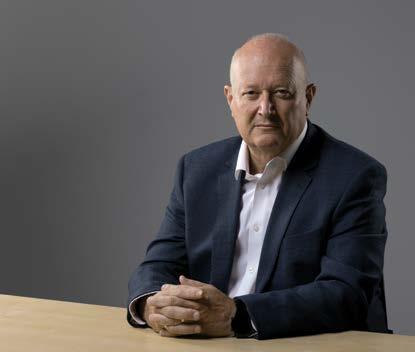
Sergeant Michael Hutchinson could well have gone the same way as Brevet Sergeant Jason Doig who died in the Senior shooting incident
Police officers based in the Northern District were, and still are, determined to pay a special tribute to murdered senior constable David Barr

EXECUTIVE SECRETARY
Level 2, 27 Carrington St, Adelaide SA 5000
www.pasa.asn.au
P: (08) 8212 3055 (all hours)
E: pasa@pasa.asn.au
Membership enquiries: (08) 8112 7988

EXECUTIVE ASSISTANTS




POLICE JOURNAL
MEDIA AND COMMUNICATIONS

REPRESENTATIVES
Superannuation
Leave Bank
Country housing
Commissioner’s Office Health Safety & Welfare Advisory Committee
Legacy
Sexual Orientation, Gender Identity & Intersex members
DELEGATES & WORKPLACE REPRESENTATIVES
Metro North Branch
Elizabeth
Gawler
Golden Grove
Henley Beach
Holden Hill
Northern Prosecution
Northern Traffic
Parks
Port Adelaide
Salisbury
Country North Branch
Ceduna
Kadina
Peterborough
Port Augusta
Port Lincoln
Whyalla
Crime Command Branch
SOCIB
Forensic Services
Intel Support
Major Crime
Serious Fraud
South Coast
Metro South Branch
Adelaide
Christies Beach/Aldinga
Hindley Street
Haydn Evans
Rob Mowday
Darren Quirk
Alan Pagac
Adam Knoll
Tim Pfeiffer
Neil Hastie
Edward Matias
Paul Blenkiron
Philip Proctor
Samuel Priest
Gavin Moore
Nathan Paskett
Jake Whenan
Ian Baker
Paul Velthuizen
David Furniss
David Bowman
Shaun Blundell
Phil Buttfield
Robert Plenderleith
Luke Watts
Stuart Mee
Gary Craggs
Michael Montgomery
Michael Kent
Andrew Heffernan
Andrew Heffernan
Steven Whetton
Julian Snowden
Nadia Goslino and Andrew Heffernan
Metro South Branch continued
Netley
Robert Brelsford
Southern Prosecution Sallie McArdell
Sturt
Country South Branch
Adelaide Hills
Berri
Millicent
Murray Bridge
Renmark
South Coast
Operations Support Branch
Academy
Academy
ACB
Band
ComCen
ComCen
Dog Ops
Firearms
Human Resources
Mounted Ops
PSSB
STAR Operations
State Ops Support Branch
Traffic Services
Traffic Services
Richard Hoar
Jason Blucher
Tamara Day
Tanya Payne
Richard Miles
James Bentley
Andrew Bradley
Melanie Smith
Peter Koulianos
Tony Boots
Adam Buckley
Glenys Moriarty
Mark Dearman
Levi Struthers
Brett Carpenter
Eugene Wasilenia
Sonia Wellings
Mark Staples
Craig Murphy
Duncan Gerrie
Benjamin Bowey
Joshua O’Dwyer
Youth & Street Gangs Taskforce Ian Kilpatrick
Officers Branch Constantinos Kyriacou
Craig Terlikowski
When it comes to in-home aged care, you want the very best. Choose Police HomeCare Services and you’ll see that protecting your independence and serving your needs isn’t just in our name, but our nature.

Wade Burns PRESIDENT

Policing in SA faces a critical juncture — and accountability rests firmly at the pointy end of SAPOL
What’s happening inside the organization is so unsustainable that many members now find it difficult to speak positively about a job they once loved
The latest Police Association member survey, conducted by an independent research company, paints a picture of a workforce pushed to its limits by executive leadership that appears more committed to denial than reform.
With nearly 1,500 sworn members responding — a third of the entire police workforce — the results lay bare a force that’s suffocating under bureaucracy, strangled by ineffective leadership, and bleeding out through mass attrition
The numbers don’t lie, and the voices on the ground — those actually doing the job — are screaming
Yet, the very leaders tasked with fixing the rot appear too insulated to care
Let’s start with the obvious: morale . An astonishing 89 per cent of members say it was better a decade ago.
That isn’t a warning bell — it’s a blaring emergency siren How has SAPOL allowed things to deteriorate to this point?
Camaraderie — once the backbone of the blue family — is compromised The sense of solidarity that once defined SA’s police culture has been replaced by suspicion, burnout, and bureaucratic fatigue
As one member said: “Higher workload, higher pressure, more bureaucratic BS and red tape, and lower respect for police has resulted in the poorest morale I’ve ever experienced in anything in my life... ”
This is not the grumbling of a few malcontents. This is the collective strain of an exhausted workforce
Crime prevention is being sacrificed on the altar of compliance. As one member wrote: “In 2025, I barely know any of the local crooks. It feels like my job is about appeasing management… There is no more autonomy.”
And why wouldn’t morale be low?
When policing is reduced to little more than jumping through hoops and chasing optics, the focus is no longer about serving the community
Perhaps the most damning revelation is the overwhelming loss of faith in SAPOL’s executive leadership team (ELT).
The survey confirms what many have whispered for a decade: the people running SAPOL are detached from reality, deaf to feedback, and strangled by bureaucracy
Eighty-five per cent of members say there is a disconnect between the ELT and front-line policing Eighty-nine per cent say there’s too much red tape
The ELT is perceived as being more interested in protecting itself than protecting its people.
Members report they are routinely ignored, micromanaged, and punished through administrative overreach.
Nearly 60 per cent believe administrative orders are being used punitively, not constructively — a medieval tactic dressed up in HR jargon
Let that sink in: in 2025, SAPOL’s front line feels like it’s being scrutinized more harshly by its own senior leadership than by the public it serves
One member didn’t mince words: “ELT are so self-serving and egotistical that no one feels any confidence to speak out. ”
Once upon a time, proactive policing meant knowing your beat, building trust with the community, and preventing crime before it happened
Today, members are reduced to purely reactive policing, taking orders from HR bureaucrats who’ve never lived a day in the real world of policing
One member perfectly summed up the stark — and measurable — reality of the dysfunctional District Policing Model: “We've lost our backbone as a force and succumb to being a service. The DPM has destroyed almost all proactive policing. ”
And only 17 per cent of members say they have enough time to properly
investigate crimes Why? Because they’re drowning in paperwork, performance metrics, and red tape from systems like SHIELD — ironically introduced to streamline operations but now loathed for doing the opposite Crime prevention is being sacrificed on the altar of compliance. As one member wrote: “In 2025, I barely know any of the local crooks. It feels like my job is about appeasing management… There is no more autonomy ”
This is the modern SAPOL: an organization more obsessed with how it looks than what it does
“I believe SAPOL is more interested in optics than reality,” one member said That sentence should hang above the ELT’s boardroom table, in bold, as a reminder of the chasm they’ve created between management and mission.
In what might be the most damning metric of all, only seven per cent of members would recommend policing as a career
More than half of members are “detractors”, actively warning others against joining the police
One member put it plainly: “ELT hate us The work is constant, and the pressure is high… I would never allow family to become police ”
It’s no surprise then that only half of SAPOL’s workforce plan to still be around in three years.
And what about recruitment?
The bar has dropped. Standards are eroding Experienced members are leaving at higher rates than ever before
If life in the metropolitan districts is rough, in regional SA it’s borderline catastrophic
A staggering 84 per cent of country officers rate the ELT’s understanding of regional issues as “poor” or “extremely poor”, and just five per cent believe the ELT genuinely listens to them. Regional officers face unique challenges — housing availability and quality, distance, isolation, limited resources — and are rewarded with indifference
This is not a union gripe. This is not a generational whinge. It’s not “us versus them”. It’s a red-alert warning from the heart and soul of the force itself.
The current allowance system is so ineffective that only 14 per cent feel encouraged to take on regional roles
SAPOL wants boots on the ground in regional areas but refuses to adequately support them And country communities are suffering because of it.
All of this didn’t happen overnight. It’s the result of a decade of incremental disconnection and a culture that punishes initiative and rewards compliance
SAPOL’s ELT is not just losing the room — it’s losing the confidence of the very people who wear the uniform
And let’s not blame “societal pressures” or “changing expectations ” Every public service faces those issues
What distinguishes SAPOL is its institutional refusal to listen to its workforce and adapt from the ground up, choosing instead to whitewash dissent with spin and silence. What SAPOL needs now isn’t another report, another review, another taskforce, or another internal memo patting itself on the back It needs a total overhaul:
• Strip back bureaucracy and let members do their jobs
• Rebuild trust between the ELT and the front line by putting leadership where it matters and taking it away from where it doesn’t.
• Invest in the professional development of SAPOL’s front-line leaders — sergeants and senior sergeants
• Abolish the disastrous District Policing Model once and for all
• Stand firm against external agencies whose overreach is preventing officers from doing real, front-line police work
• Overhaul the internal disciplinary system, so officers aren’t trapped for years under the heavy hand of Internal Investigations Section, waiting endlessly for resolution.
Wade Burns
• Create fair, transparent career pathways that prioritize merit ahead of HR gatekeeping
• Support officers’ mental and physical health, not with obnoxious, politically correct tokenism but with tangible policies and processes that reflect the actual realities of policing
• Listen — really listen — to the men and women risking their lives every day
If those in the current executive can’t — or won’t — do this, they should give up their positions to individuals who can and will
South Australia cannot afford another decade of managed police decline.
This is not a union gripe. This is not a generational whinge. It’s not “us versus them”. It’s a red-alert warning from the heart and soul of the force itself.
Unless bold, courageous leadership steps in, the downward spiral will continue
The commissioner’s deflection is an insult to every member
Commissioner Grant Stevens had a choice: confront the truth, or dodge it
He chose the latter.
Instead of preparing to acknowledge honest feedback from his workforce, the commissioner launched a tonedeaf attack on the integrity of the survey itself
A survey run by one of the state’s most highly respected research firms, an independent organization with a two-decade track record and oversight from a Fellow of The Research Society
Why did the commissioner take this path? I can only guess it’s because he knew the results would be damning
His criticism of the survey’s methodology is not only baseless — it’s an insult. An insult to the intelligence of the researchers . An insult to the professionalism of the members And,
above all, an insult to every police officer who gave honest, anonymous feedback in good faith
This was far from a one-off result
The same issues were raised in 2022, when Police Association delegates, who represent every workforce in SAPOL, passed a unanimous motion of noconfidence in the commissioner’s now-discredited District Policing Model.
In a 2023 association survey, only four per cent of officers believed the DPM was providing adequate service to the community
We can even go all the way back to 2016, when only six per cent had any faith that his so-called “organizational reforms” — the early blueprint for today’s broken DPM — would improve police services
That’s right — members on the ground saw this debacle coming nine years ago
For the record, in that same 2016 survey, 86 per cent of police officers rejected Commissioner Stevens’ 50/50 gender recruitment policy.
The commissioner flat-out ignored members then, just as he’s scrambling to discredit them now
In 2024, in the People Matters survey of government departments, SAPOL scored lower than the SA public sector average on 22 of the 24 surveyed measurements of employee satisfaction
The latest survey is just the newest chapter in a long story: an ELT that doesn’t listen and a commissioner who has never pretended to.
And if there was ever any doubt that SAPOL’s ELT is hopelessly out of touch, its latest response to overwhelming member feedback confirms it
Officers from across the state voiced deep, personal frustration about broken systems and a leadership team that refuses to listen
What did they get in return?
A dismissive statement to the media from a faceless “spokesperson”, addressing none of the actual concerns raised.
This is exactly the problem: the buck stops nowhere.
Those in of SAPOL’s ELT continue to bury their heads in bureaucratic sand
and deflect responsibility for a decade of damage
And, far too often, this strategy actually works for them For too long, the ELT has operated with near-total impunity
And if the commissioner is so confident the survey is wrong, he should run his own — and publish the results in full.
This isn’t about asking tough questions It’s about who those questions are never asked of
While members break under the weight of under-resourcing and defective policing models, the commissioner and deputy commissioner continue to enjoy soft coverage and carefully managed interviews — all while avoiding direct accountability
As for the assistant commissioners: why are they accepting this? SAPOL doesn’t need more bureaucrats in police uniforms It needs real leaders — now
This is a huge opportunity for the ACs to make a difference, rather than remain as passive bystanders who uphold a broken status quo.
The current regime is closer to its conclusion than its beginning, and the legacy it leaves behind will be one of disconnection, dysfunction and deepening dissatisfaction across the ranks
If any of the ACs still believe in the future of policing in this state, the time to step up — not fall in line — is right now
The next chief will inherit a police force running on fumes if silence and self-preservation remain the dominant strategy among the most senior levels of SAPOL leadership.
And if the commissioner is so confident the survey is wrong, he should run his own — and publish the results in full
Until then, the message from the ground is deafening: the people running this force are losing the trust of the people serving in it
That is not a PR issue It’s a leadership problem
And if those in the current ELT won’t fix it, they should get out of the way.
Explore fleet pricing available today.


Stand out from the crowd with the anti-ordinary Hyundai KONA. Available in petrol, hybrid and electric powertrains, our award-winning small SUV features innovative technology and design, bringing you an enhanced and dynamic driving experience.
Hyundai Australia thanks the South Australian Police for their support to the community. In appreciation, National Fleet Pricing is now available across the entire Hyundai model range (excluding N Models).
Contact your local Hyundai Dealer today.

Explore KONA range
BY BRETT WILLIAMS
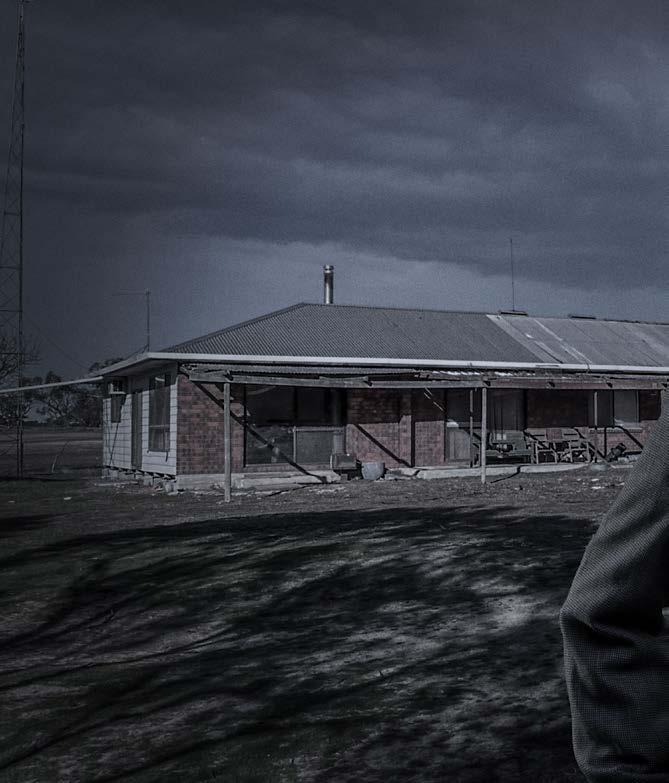
Sergeant Michael Hutchinson was lucky to survive the shooting which cost the life of Brevet Sergeant Jason Doig. What he came to feel afterward was “bullied” out of his job.
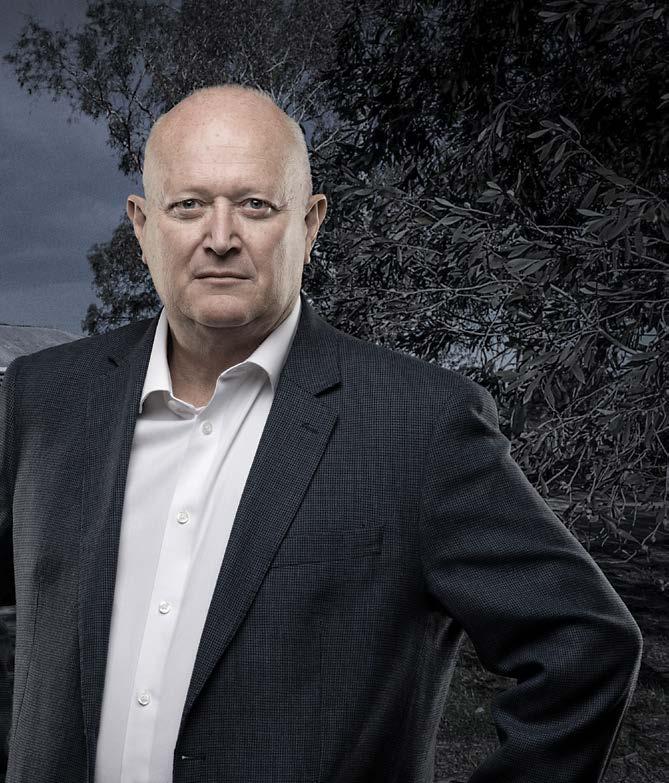

ergeant Michael Hutchinson dislikes but does not hate the gunman who shot him and killed his colleague, Brevet Sergeant Jason Doig, at Senior in 2023 He believes in the theory that to carry hatred is to damage oneself rather than the hated Free of anger and bitterness is how he wants to live out what he calls “the last quarter of my life”
No one in policing would have condemned Hutchinson, then 59, if he had chosen to hate Right in front of him, he had seen the shotgun blast which, fired by Jaydn Stimson, killed 53-year-old Doig. And there was the blast Hutchinson himself took, to his head and abdomen, and the health issues which would beset him for life
The irony was that, as a veteran country cop, Hutchinson had known Stimson, then 26, since long before the killer fired a shotgun at him
He knew his whole family, and no animosity had ever existed between Hutchinson and Stimson Exchanges between the two were indeed friendly. Hutchinson always offered a greeting and, once or twice, some parent-like advice.
In a Bordertown youth centre Hutchinson ran for around a dozen years, he had taught Stimson how to play pool And, later, if ever he saw Stimson and his brothers playing pool at the Bordertown Hotel, he always acknowledged them
Even as a year-one kid, Stimson had sat in on school talks Hutchinson gave about police No thought then, of course, that that kid would grow into a killer and shoot the school-visiting cop after gunning down his colleague.
On that Thursday evening, November 16, Bordertown OC Hutchinson was not even rostered
to work the afternoon shift He had returned to duty after receiving a call from Bordertown colleague Senior Constable Rebekah Cass around 9:40pm.
She had briefed him on a report of domestic violence at the Stimson place And it seemed the violence might have involved the shooting of a dog Once Hutchinson had a grasp of, and assessed, the circumstances he decided to return to duty
“Knowing there was only one member on duty the next day,” he says, “I couldn't leave it for just her to do It was a big enough job, it ticked all the boxes in relation to high-risk DV, so ‘let's do it tonight’ (I decided).
“So, it was going to be Bek and me who were going to do it but, then, Jason just turned up. I believe he was monitoring the job
“We do that all the time We hear a job, start cruising toward the place and, if needed, we jump in You have to do that all the time because we’re so lighton up that way ”
Hutchinson was “quite happy” to have Lucindale OC Doig, a firearms training officer, as back-up to him and Cass. He had worked with him many times, knew how he operated, and perceived “a great aura” about him.
Indeed, the previous week, Doig had finished a stint relieving at Bordertown And, just days before he died, he had led Hutchinson and others in firearms training
But now, the need was for a plan before any move on the Stimson house
The officers gathered at Bordertown police station where Cass briefed Hutchinson and Doig Hutchinson undertook the standard firearms licence and criminal-record checks on Stimson.
“I looked up real estate (online) too,” he says, “to check out the house and make sure I had the right one I’d been
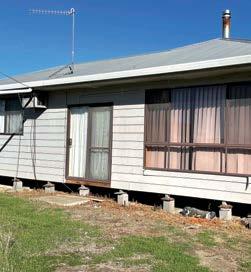
to that house before for another job so I kind of knew the place Jaydn wasn’t (living) in it at the time I did a mud map of the house on the whiteboard as far as I remembered it. ”
After 23 years based in Bordertown, Hutchinson had a stack of local knowledge He knew the town of Senior intimately On Senior Road over the years, he had dealt with three fatal crashes and numerous house fires
“I’ve been almost at every house bar two on Senior Road,” he says “And from the briefing from Bek, we knew it was only Jaydn living there (in his house) ”
The trio agreed on how best to approach the house. Hutchinson would take the front and Doig the back . Cass would remain outside to cover both officers in case Stimson was lurking somewhere outdoors with a surprise attack in mind
So, with their action plan, the officers set out in two cars for the Stimson house On the 15km drive, Hutchinson rang Stimson and left a voice message He indicated that he and his colleagues were on their way to him (Stimson) to check on his welfare
Also part of his message was not to panic at the sight of the police cars. It was good advice given that, when they got to the scene, the officers activated their red and blue emergency lights. In the darkness, at that late hour, the cars were then unmistakable
1. The western side of the Stimson house.
2. The back wall of the house leading up to the dual rear entry.
3. The rear entry area with doorways either side.
4. Front view of the house and the door through which Hutchinson entered.
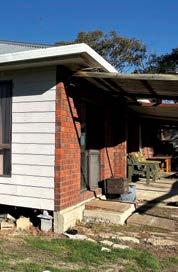
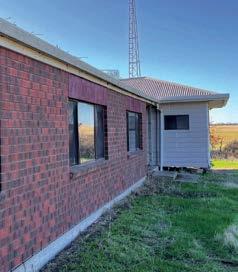
So, now at the property, the officers headed cautiously down the driveway
The car headlights, directed at the house, gave some light to their path. As they had planned, Doig went to the back and Hutchinson to the front, where he announced himself.
“Jaydn,” he called out “Sarge here You know me Where are you? We've come to check on your welfare ”
No response came from Stimson, and Hutchinson could see only one light on in the house, in the master bedroom
“The bed had been pulled to the side,” he recalls, “which probably indicated to me that he (Stimson) was inside the house somewhere. ”
Acting on instinct, Hutchinson entered the darkened house through one of two front sliding doors and began to look for Stimson The sizeable home consisted of 10 main rooms: five bedrooms, two living areas, two bathrooms, and a kitchen-dining area
From an equally sizeable garage was direct entry to an expansive living area at the back of the house Hutchinson headed in that direction as he searched rooms for, but found no sign of, Stimson
Once in that living area, he discovered that, in the adjoining laundry, was a washing machine –which was running. So, there was the chance that, if it was Stimson who had started the machine, he was somewhere in, or close to, the house
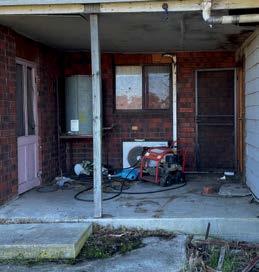
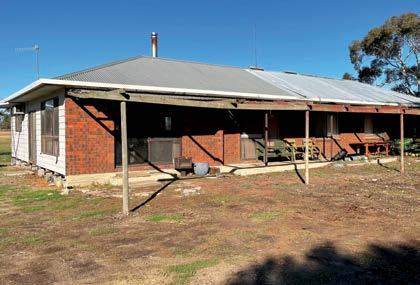
“The bed had been pulled to the side, which probably indicated to me that he (Stimson) was inside the house somewhere.”
Hutchinson and Doig came together in the living area, spoke momentarily, and established that neither of them had seen any sign of Stimson What they spotted up against the western wall of that back room, however, was an open gun safe with no firearms inside.
“At that stage, I thought: ‘Has he (Stimson) gone out the back?’ ” Hutchinson says. “I’m then thinking about Bek outside (and her safety)





So, I thought: ‘We’ll clear the house, reassess, and then, if we can’t find him quickly, we’ll come back in daylight when it’s probably a lot safer ’
“But, at that stage, we were still calling out to him. There was no noise. Nothing there. ”
That was until they checked the last bedroom on the other side of that western living-room wall The bedroom adjoined not only the living area but also the garage to its north
As Hutchinson remembers it, he was just a metre behind Doig who moved first to look into the room, partially illuminated by light from the garage But Doig appeared not to see anyone in there and nor did Hutchinson, who “basically just looked over his (Doig’s) shoulder”.
Then, from that metre-or-so behind Doig, Hutchinson looked to his right, into the garage He saw no one but, in
an instant, a shotgun blast rang out! Hutchinson saw the muzzle flash and Stimson behind it and realized Doig had taken the blast!
“I was like: ‘F--k! Where did he (Stimson) come from?!’ ” Hutchinson recalls.
Stimson had emerged from that bedroom Behind a short length of the western living-room wall, which extended into the bedroom, was where he had kept himself out of sight Hutchinson was now extremely vulnerable He desperately needed cover and so “bolted” around four metres into the garage Its doorway was barely a pace away from the bedroom door
But nothing in the garage, other than some flimsy cardboard packing boxes, offered Hutchinson any protection. Nonetheless, he literally rolled in behind them and, in the process, tore his right medial meniscus
5. The room Hutchinson dived into for cover from Stimson.
6. Passageway leading to wet area and bedrooms.
7. Kitchen-dining area at the front of the house.
8 – 9 The bedroom from which Stimson emerged and fired on Doig and Hutchinson.
10. The rear living area leading up to the rooms at the centre of the shooting.
“I felt my knee pop,” he says “But I had to put that behind me I can remember hearing another shot or shots, but the sequence of shots gets a little bit grey (in my memory). ”
In another instant, Stimson appeared in the garage doorway, still armed with a shotgun.
“I pulled out my gun and, as I came out from behind the boxes, he shot at me, and I returned fire,” Hutchinson recalls “After I’d fired my shots, he wasn’t there in the doorway anymore ”
Just moments before all the gunfire, Cass had stepped out the blackness of the night and into the house
When only a few paces beyond the front door, she heard the shots but did not know who had fired at whom. Nor did she know who, if anyone, had taken a hit.
Without knowing if she was herself now under threat from Stimson,


“Jaydn had the shotgun open, so I think he was about to reload. And there was a .22 (calibre rifle) there as well, with a number of shells on the floor.”
she moved through the house in search of her two colleagues
Hutchinson now had serious gunshot wounds to his abdomen, which several pellets had penetrated And still more pellets had grazed the top of his head. His multiple injuries could have led him to give up on pursuing Stimson, but Hutchinson took the opposite course.
He knew that, unless he cut off any potential for the attack to continue, he and his two colleagues would still be at risk His focus now was to find and contain Stimson
Hutchinson headed for the adjoining bedroom where he suspected Stimson had gone Near the doorway was Doig lying badly injured on the floor He was indeed near death from serious gunshot wounds to his torso.
Hutchinson stepped into the bedroom where he found Stimson who had collapsed onto the floor with wounds to his torso and leg
“Jaydn had the shotgun open,” Hutchinson recalls, “so I think he was about to reload And there was a 22 (calibre rifle) there as well, with a number of shells on the floor
“I approached him, explained that I was going to handcuff him, and he knew who I was So, I handcuffed him, quickly checked his injuries, and he was coherent.
“But Jason was the priority. I went to him and he had a significant wound to the top right of his torso, and another one lower down ”
Great responsibility now fell to Hutchinson and Cass. She had by then found her injured colleagues, and she and Hutchinson would do all they could to save Doig But it would, of course, be under extreme mental and emotional tension
The pair tended Doig’s wounds and began an exchange of messages with police communications
“We heard that ambos were going to be 45 minutes,” Hutchinson says “My thought was: ‘Bugger this. I can get Jason to the hospital quicker. ’
“I started dragging him along the floor, but I was simply stuffed. I couldn’t do it I didn’t actually realize then that I’d been shot in the head ”
Doig was suffering his heaviest blood loss from the wound to his upper torso With bare-handed pressure, both Cass and Hutchinson tried desperately to stem the flow Soon, however, Hutchinson sensed that Doig had stopped breathing
“I put my head to his heart, started CPR, and got him back,” he says. “But he stopped breathing again soon afterwards, so I did CPR again, and got him back again
”
No matter how ferociously Hutchinson tried to save his mate and colleague, it was never going to be enough Doig soon stopped breathing again It appeared to Hutchinson that he had died but, despite his own injuries, he refused to stop trying to resuscitate him
Ambos soon arrived and made equally valiant attempts to try to revive the slain Doig with CPR and a defibrillator. And after the ambos came paramedics who took over but could not save Doig.
“We cut open his vest, took off his gun belt, and saw the significance of the wound,” Hutchinson says “We didn’t realize the significance of the injury until that was all cut off
“My guess is he (Stimson) must've been only 30 centimetres or less away when he shot Jason It was a full blast ”
Finally, Hutchinson had to step away, not from his duty but from Doig He went about contacting his inspector and briefing police communications. One comms operator, whose brilliance he still remembers from that night, was Senior Constable 1C Jon Fuller
“He was great,” Hutchinson says. “His professionalism was spot on. His calmness helped me to stay calm I wasn't bombarded with questions It was clear, concise feedback ”
Back-up officers were soon on the scene with their expertise too – Brevet Sergeant Kirsty Wood, Senior Constable Dan Coventry and Constable Rick Hornberger For them, and other officers who would respond to the incident, police procedures were now critical.
“Obviously, they separated us (Bek and me),” Hutchinson recalls, “and Dan Coventry took my firearm (Senior Constable 1C) Tenille
Schmidt, (based) at Bordertown at the time, had been recalled. She came in and took Bek into town
“I went with (Senior Constable 1C) Luke Hutchesson, who was a traffic member He brought his own brandnew, private car and took me in (to hospital) On the trip, I was just concerned about putting blood over his new car
“On the way in, it was broadcast officially over the radio that Jason had passed. But I knew that already. And I thought: ‘If I had the same situation, I would never take anyone in the house with me.’ My greatest regret of the whole thing is losing Jason on my watch ”
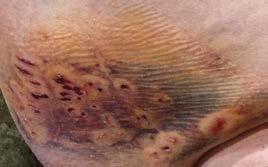
“On the way in, it was broadcast officially over the radio that Jason had passed. But I knew that already. My greatest regret of the whole thing is losing Jason on my watch.”
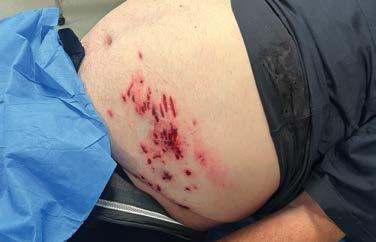
AtBordertown Hospital, Hutchinson underwent urgent treatment. He never knew until then that shotgun pellets had grazed the top of his head It was not his most painful injury, nor was the one to his abdomen, in which eight shotgun pellets had lodged Most agonizing was the damage to his knee
In any case, he was soon on a Royal Flying Doctor Service plane headed for Adelaide On board with him was a young girl who had injured herself in a fall. The plane got to Adelaide at 5:15am on November 17 with Hutchinson bound for Flinders Medical Centre.
There, he underwent surgery to remove two of the eight shotgun pellets from his abdomen The medical advice was that extracting the other six was likely to cause more damage than would leaving them in place
“The only thing I wanted was to see my daughters,” Hutchinson says “They all came down and saw me at Flinders When they came, I said: ‘You tell me what you want and don’t want to know,’ and I walked them through it (the shooting).
“There might have been a couple of tears, but they were fairly stoic. My wife, Debbie, was very stoic too It’s not the first time I’ve been injured at a job ”
Discharged from hospital after a few days under observation, Hutchinson moved to a nearby hotel Police nurse Sarah Thiele called on him every couple of days to check and redress his wounds He stayed in Adelaide on and off up until, and after, the Doig funeral
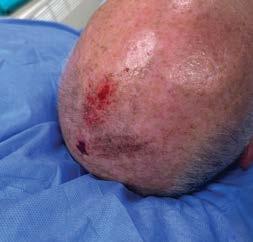
It suited him not to return to Bordertown too soon. He suspected that, back there, life for him would be like “the goldfish in the bowl” Avoiding the curious was his strong preference
When he eventually did return to Bordertown, he “basically hid in my little cocoon until I was ready to come out”
“Probably the first time I actually met anyone in public was on Australia Day (2024),” he says “That was about the first time I actually spoke to the public about the incident, as much as I could. And that was tough.
“They were looking for everything (as far as detail) and, obviously, you can’t say too much All I could say was: ‘I’ve got my injuries and I’m recovering Jason’s obviously died and he was a great fellow ’ And I just said: ‘Thank you,’ for the community support That helped get me through everything ”
And get through everything he has, although not without lingering physical and psychological scars Images from the shooting were always going to remain with Hutchinson – everything from the shotgun muzzle flash to Doig near death on the floor.
“It's usually the first thing I'll wake up and think about in the morning,” he says, “and it's usually the last thing I'm thinking about at night I'll probably think about it six to 10 times every day
“When I'm in bed, I'll wake up during the night and, to stop thinking about it, put audio books onto my earphones and listen to that And that gives me that distraction ”
And, of course, the shotgun blast came with lasting physical consequences as well. Since the surgery to remove pellets from his abdomen, Hutchinson has undergone two knee operations
“I cannot sit down for more than an hour,” he explains “I've got to get up and walk around It's a constant two on the pain scale on the side (of the abdomen) and it can spike up to a five
“On bad days, I go to bed and basically just lie in the foetal position waiting for the medication to kick in At one stage I think I was taking 17 tablets a day Some days are better than others.
“I get anxiety with sudden, loud bangs and flashing. So, thunderstorms are great – not. (I wear) eye patches, earplugs ”
“I felt absolutely betrayed. I put my body on the line for that … position and now they were ripping it away from me.”
Whilecommunity support delighted and truly helped Hutchinson, he found himself let down by SAPOL After the Doig funeral, he received no meaningful contact from management for five months
Finally, in April 2024, a trio of SAPOL staffers, including a return-to-work co-ordinator, turned up at his home. Hutchinson soon found that his visitors had not come to negotiate or even compromise insofar as his return-to-work arrangements They insisted that his preference, to return to Bordertown on light duties, was out of the question Adelaide was where they stipulated he would have to base himself
“Then,” he says, “after the meeting, they went and had a conversation outside my house for 15 minutes. I don’t know what they were talking about, but I can guess it was me. I thought: ‘Yeah, not great.’ That was the first of many kicks (in the gut) ”
The whole episode struck Hutchinson as simply not right. Left distressed by the staffers’ edict, he called on the Police Association for help And the association responded immediately, referring him to law firm Tindall Gask Bentley Lawyers Police Association president Wade Burns spoke of the SAPOL treatment of Hutchinson as not just uncaring but also damaging to his recovery
“Here was a member who had seen his colleague killed and had himself been shot,” Burns says. “It’s impossible to overstate the impact of a trauma that intense.
“Michael suffered, his family suffered, and SAPOL chose to add to their plight He sought nothing more than to return to Bordertown on light duties
“It shouldn’t have mattered whether or not that suited the employer SAPOL should’ve been falling over itself with gratitude for Michael and his bravery and accommodated him accordingly. ”
Not until nine months after the shooting did Hutchinson get to participate in his first “proper” return-to-work meeting. And the message was still the same: no light duties for him at Bordertown
What he had been through, and his heroism, carried no weight with SAPOL – not when it came to the matter of his return to work
Hutchinson “really did get annoyed” at that meeting and asked for the SAPOL edict in writing He also made his feelings known.
“I feel ostracized and disenfranchised by everything that’s going on,” he told the meeting. “I want to get back to work at Bordertown This is what I want ”
Then from SAPOL came the idea to appoint an additional sergeant to Bordertown As Hutchinson understood it, that appointee would perform operational functions while he would return to his post but only perform administrative duties
Both he and the association considered the idea completely unworkable.
Nonetheless, SAPOL advertised the position of Bordertown police station OC in the Police Gazette (September 18, 2024) And, at the time,
no medical evidence existed to indicate that Hutchinson would not, or could not, ultimately return to full operational duties
So, Hutchinson again turned to the Police Association which took up the fight for him That ended with the withdrawal of the advertisement But then came another return-to-work meeting on November 19 – with five SAPOL representatives
SAPOL seemed not to have considered the potential for that many of its people to intimidate Hutchinson and his wife. So, Police Association president Wade Burns and assistant secretary Steve Whetton both attended the meeting with him
“So, thankfully, I had them with me on my side at that meeting,” Hutchinson says “They (SAPOL) again said: ‘We’re going to do this (two-sergeants) proposal ’ It was such a kick in the guts
“I’d spent 23 years looking after this town. I had this wealth of knowledge and experience I could pass on to my subordinates, but they (SAPOL) wouldn’t listen.
“I felt absolutely betrayed It’s not my fault that I got shot I put my body on the line for that town and for that position and now they were ripping it away from me ” Hutchinson felt the meeting “going downhill badly”
“It was probably one of the worst meetings I've ever had in my life,” he says “I was just getting annoyed, getting overloaded, and my wife was almost crying. ”
A resolution, which would satisfy Hutchinson, was looking unlikely –until Burns came up with one He suggested to the meeting that SAPOL transfer Hutchinson to Nuriootpa It was to there, after all, that he would eventually retire
“Wade said: ‘He can go to Nuri and finish his time there under his own steam,’ ” Hutchinson recalls “And, all of a sudden, the meeting changed, like completely 180 (degrees) ”
The Nuriootpa resolution was one Hutchinson could accept. And by fronting SAPOL, Burns and Whetton had won it for him. His move to Nuriootpa went ahead
So,that was the return-to-work dilemma overcome. But Hutchinson still felt continuously cast as the forgotten employee It seemed to him that all he had risked, and the heavy price he had paid, meant little to SAPOL
And SAPOL repeatedly showed his perception to be reality In September last year, for example, it failed to invite him and Cass to one of the most meaningful tributes to Doig It was the unveiling of the Jason Doig plaque on the police academy wall of remembrance.
Presented to members of the Doig family were the SA Police Bravery Medal and the Leadership & Efficiency Medal, awarded to Doig posthumously Hutchinson and Cass never even scored back-row seats to the ceremony
Of course, his colleagues assumed he had attended the event, and many sent him messages to ask how it went “What are you talking about?” was all he could say.
“That (missing the ceremony) was probably the biggest kick in the guts of the whole thing,” he says “It would have been nice just to be in the back of the crowd, to be a part of the process and part of the recognition That probably hurt me more than anything else in the whole thing ”
Not until six weeks later did Hutchinson and Cass receive the SA Police Bravery Medal He still laments the lost opportunity for them to receive their medals at the ceremony which honoured Doig. Hutchinson faced further humiliation when, in September 2024, he attended police headquarters for an appointment with the police medical officer Beyond the foyer, he could not access the building as SAPOL had revoked his police ID card
So, police security officers called the PMO, confirmed the appointment, and escorted Hutchinson to the first floor, as they would an outsider
“All my accesses were cancelled,” he says. “I got put to the side. ”
Rather than give Hutchinson its support at every turn, SAPOL seemed to position one obstacle after another in his path
“I honestly feel bullied out of my job. You need to be appreciated. You need to be recognized for the fact that you've been through a bad, bad situation.”

There was the medical clearance it demanded of him simply to attend the Police Remembrance Day service at the police academy Another demand of him was to get a referral from his own doctor to see a SAPOLappointed occupational health specialist
It all created a stark contrast with the way in which the Police Association and the Police Federation of Australia looked after Hutchinson. The association protected him when he had to interact with SAPOL and Steve Whetton nominated him for the 2024 National Police Bravery Award
The PFA ultimately named him and New South Wales Police inspector Amy Scott joint recipients of the award Scott had brought the Bondi Junction stabbing rampage to an end when she fired on the attacker, Joel Cauchi, in April 2024
The presentation of the award took place at a dinner in Melbourne on September 17. But no responsibility to make any arrangements for travel or accommodation fell to Hutchinson. The PFA managed and paid for everything for him and his wife
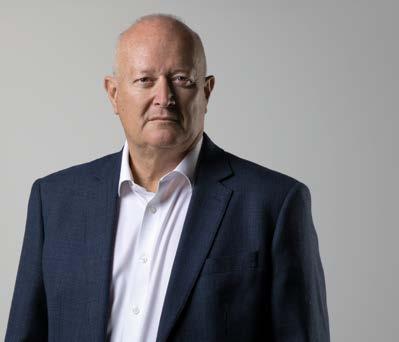
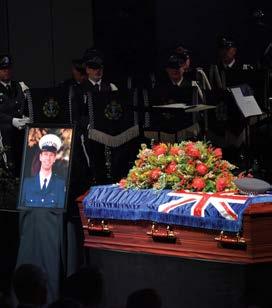
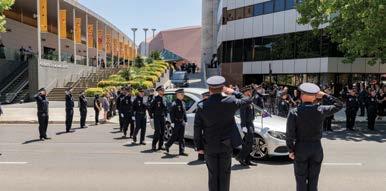
SAPOL on the other hand contributed nothing at times when it could have as a gesture of goodwill Debbie Hutchinson many times drove her husband – who could not then drive himself – from Bordertown to Adelaide and back for medical appointments Nothing from SAPOL toward travel costs
And when Debbie needed a hotel room close to the hospital, while her husband underwent surgery, SAPOL refused to pay for one. So, from Two Wells, where she was staying with her daughter, she made the 50km trip to Flinders Medical Centre and back over several days
Hutchinson has now lost any love he ever had for SAPOL He feels it has robbed him of his “ability to leave with a bit of pride and dignity” when retirement beckons
“I honestly feel bullied out of my job,” he says “You need to be appreciated You need to be recognized for the fact that you've been through a bad, bad situation ”
That was the reason Hutchinson spoke to the Police Journal. He wanted his story to serve as “a kind of debrief” to help those of his colleagues who, in the future, suffer critical-incident trauma
What he has never lost is regard for his many friends in the job – friends who gave him support which SAPOL failed to deliver
“The people who cared for me since the incident have been wonderful,” he says “Major Crime (investigated the shooting and) has been fantastic.
“My life (purpose) from here will be to honour Jason. It's my privilege to honour him in any way I can. His actions on the night probably saved my life ”
BY BRETT WILLIAMS
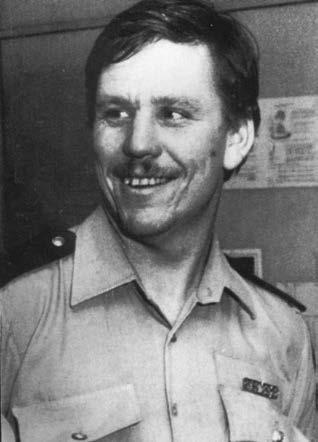
THE POLICE FAMILY STILL REVERES MURDERED SENIOR CONSTABLE DAVID BARR, WHO HAS NOW HAD MORE YEARS IN DEATH THAN IN LIFE
When the anniversary of his killing came around on July 26, many struggled to believe that 35 years had passed since he fell Barr was just 31, and a husband and father-of-two
Some who paused specifically to remember him had known and worked with Barr out of Para Hills patrol base. Others knew of him only through shared stories of his killing.
Chief Inspector Andrew McCracken, a young Elizabeth-based constable back in 1990, worked the patrol area next door to Para Hills He knew Barr only slightly but well enough to perceive the quality of his character, his street-cop skills, and the regard in which others held him
Now based at Northern District and serving as its acting OC, McCracken conceived the Senior Constable Dave Barr BM Memorial Ceremony and 5km Run/Walk.
“We were approaching the 35-year mark, and I saw it as an opportunity to pause, reflect and pay recognition to his (Barr’s) sacrifice,” he says
“And, from a district point of view, I thought it would highlight what the work of front-line police is like, what we do, the inherent dangers
“It was also a chance to have the younger generation now pause, reflect, and look back on people who made the ultimate sacrifice ”
Barr made his sacrifice after he responded with patrol partner Jamie Lewcock to a report of a man threatening a woman at the Salisbury Interchange.
Once on the scene, just after 9am, the two officers identified Lindsay Allan Fry as the offender and moved to arrest him The knife-wielding Fry, however, stabbed Barr in the chest Barr fell to the ground struck with massive blood loss The knife, so forcefully thrust, had penetrated his heart After surviving 15 years in policing, he was now in a fight for his life
Paramedics quickly on the scene cut his uniform from his body, administered treatment, and then rushed him to the Lyell McEwin Hospital.
Back at his Salisbury Heights home, his unsuspecting wife, Gwenda, was
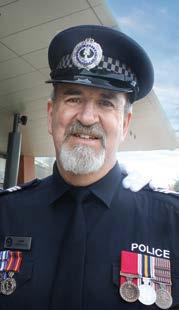
about to hear that an attack had left her husband seriously injured The now late inspector and Para Hills OC Al Thomson would be the one to tell her after she answered his knock at the door
She spoke of that moment in a 1998 interview with the Police Journal Thomson’s first words, as she best remembered them after eight years, were: “There’s been an accident. David’s been injured. ”
“I think even the word ‘stabbed’ was mentioned,” she said “My immediate thought was: ‘Okay, what’s he got himself into now ’ I didn’t think of how severe a stabbing could be I suppose that was very naive
”
Thomson explained that Barr was in the Lyell McEwin Hospital and told Gwenda: “I want you to be there with him ”
“And then I think she realized how serious it was,” Thomson told the Police Journal. “You could see her suddenly changing. She went literally white (and) I thought she was going to faint ”
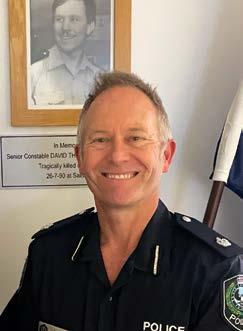
Thomson drove her to the hospital where she took on an anxious wait for news of her imperilled husband. A hospital co-ordinator kept her informed as and when she could but, in the end, had to tell Gwenda her husband had died
2. Chief Inspector Andrew McCracken.
“I was shocked, stunned and numb,” she said in 1998 “I couldn’t believe it; I didn’t want to believe it either It was terrifying ”
And there would be no let-up for Gwenda. She next had to break the news to her daughters, Nicola and Sarah, then eight and six . She told them their dad had died, “that he wasn’t coming home, and they’d never see him again”
To Jamie Lewcock, then 26, Barr was not only his partner but also a mate When word of the death reached him at Elizabeth police station, he simply broke down
“To get that news was a big shock,” he said in a separate Police Journal interview in 1999 “It knocked me right over. It was one of those things that you’re just not ready for. The wound was so small and seemed almost insignificant (at the scene) ”
“I’ve heard members speak of Dave Barr as the most decent, humble man so I suspect he would’ve been grateful for this honour.”
Lewcock and Gwenda, the two most grief-stricken people on that cold July day, met up just hours after the killing. Critical to her was to know exactly how the murder of her husband had taken place
“All I wanted to do was speak to him (Lewcock),” she said “I needed to hear it from him and also find out how he was doing ”
And giving Gwenda the explanation she sought was no easy task for Lewcock
“Because I was still coming to terms with it myself,” he said. “But she really needed to know and get it through her mind how David died and the circumstances behind it. ”
In a later police funeral for Barr, his family and workmates got to bid him a final farewell and see him listed as one of the honoured fallen Had he survived or evaded the attack, he would now be 66
But, had he lived, Barr would have suffered the loss of Gwenda, who later died of leukaemia Her death, of course, left the Barr daughters robbed of both their parents.
Both daughters have indicated their support for the memorial service and 5km run/walk in honour of their late father
Lewcock, who retired on July 2, has given his support as well and produced a written record of his recollections of the murder and its aftermath.
McCracken had intended to stage and host the memorial at Carisbrooke Park, Salisbury, on July 25 but heavy, continuous rain led to its cancellation
The event will still go ahead, however, on a date with particular relevance to Barr
“I've had help from a group of people within the Northern District,” McCracken says “It’s a bit of a project group which is supporting and helping. And, effectively, we've kept this as a Northern District drive.
“I've been happy to take control of it because I think it should sit to a degree with the Northern District I didn't want it to be a massive fanfare, so we’ve tried to pull back a little bit from the regal nature of ceremonies ”
Apart from an address by McCracken, the service will include a blessing and prayer by Reverend Josh Sherer, a bugler’s rendition of Requiescence and a minute’s silence
The 5km run/walk will begin around 20 minutes after the formalities, and the request of those participating is to donate $10. All money collected will go to SA Police Legacy
The Police Credit Union will fund and stage a barbecue after the run/walk . Police Association president Wade Burns, who had intended to run the five kilometres in July, endorsed the plan to reschedule the event
“I just don’t think it’s ever possible to over-acknowledge our fallen,” he says “We have Police Remembrance Day, of course, but there’s no reason to restrict our tributes to just that day Members who lay down their lives deserve more
“And to honour them singularly on anniversaries and other special dates, as in this case (Dave Barr), is to fulfil an onus on us. So, Andrew McCracken and his group deserve great credit for their efforts
“I’ve heard members speak of Dave Barr as the most decent, humble man so I suspect he would’ve been grateful for this honour ” PJ

E-mail your letter to the editor to editor@pasa asn au
I write in response to the Police Association e-mail of today (SAPOL recruiting standards, June 30)
As a former sergeant of police, educator, and trainer I – and many other like minds, serving and retired – am absolutely appalled at the recent announcement by SAPOL regarding entry standards.
Having the position actively endorsed by the relevant minister, and cabinet, is complicit in itself. On this point, the political class have long criticized the results of NAPLAN tests which expose the shortcomings in primary and secondary education
Dumbing down is a ridiculous notion and practice politically, economically, socially and in the workplace For a workplace, dumbing down in basic training and further education likely sets the participants up to fail. Dumbing down is akin to mediocrity as I know being a former lecturer and student of many years in South Australian academic institutions
Mediocrity in education and training refers to a state where the quality of teaching and learning is consistently average or below average, often due to systemic issues and a lack of emphasis on excellence This can manifest as a lack of innovation, limited engagement, and a failure to meet the diverse needs of students
Addressing mediocrity requires a multi-faceted approach, including strong leadership, effective teacher
training, and a focus on individualized learning
For many of my contemporaries we, who were known as the New Breed entering Fort Largs from the ’60s to undertake the three-year programme, knew that policing was complex then What has changed since that time that causes the basic training curriculum to be gradually eroded to a paltry 12 months or less today?
Many in the South Australian community would consider police officers as professionals If that is so, literacy and numeracy are essential for professionalism and the maintenance of it Strong literacy and numeracy skills are foundational for effective communication, problemsolving, and decision-making in any professional setting They enable individuals to understand instructions, analyse information, and perform tasks accurately, ultimately contributing to increased productivity and success in the workplace. Police officers throughout the democratic world must have and utilize the foregoing It is not difficult to foresee the legacy of this mediocrity and dumbness in the near future and beyond For example, a defence counsel will have a field day in their cross examination of a police officer witness whose literacy and numeracy skills are bereft. If there is a victim of that crime, they will demand an articulate witness to advocate for them.
It is reasonably well known in our community that the current commissioner is simply not invested generally in education or training of police other than in a perfunctory manner. This announcement bears testament to that.
It is said that an organization's culture often reflects the personality and leadership style of its CEO A CEO's values, behaviours, and communication significantly influence the overall atmosphere and norms within the organization This influence can be positive or negative, affecting everything from employee morale and productivity to strategic decisionmaking and financial performance.
Since the tenure of the now late David Hunt, commissioners of police have been drawn from the ranks of SAPOL and on contract It is reasonably well known in our community that the current commissioner is simply not invested generally in education or training of police other than in a perfunctory manner This announcement bears testament to that
As your president and committee know, there is serious disquiet in our community about the dire state of policing here. For example, the level of unreported crime is now reputedly exceeding 40 per cent (people have given up reporting crime), the attrition rate exceeds intake levels, an alarming number of officers are on leave due to mental health issues, and postings generally are unable to be filled
The parliamentary inquiry into the mental health of our colleagues is already demonstrating awareness of this situation
Kind regards Tom Kelsey
Thank you for the e-mail and views expressed in the communication (SAPOL recruiting standards, June 30) to members and SAPOL
I continue to take a keen interest in the work of the Police Association in ensuring that SAPOL is held accountable for providing the highest standards of policing and service to the community
This is a fundamental expectation and right of the citizens of this state.
I share the claimed concerns about the drop in standards to enable meeting recruiting targets by SAPOL
Interestingly, this is not new and was from time to time a point of discussion amongst colleagues even before my retirement
I wonder whether those currently charged with ensuring the maintenance of appropriate standards in police recruitment properly understand the associated risks of lowering standards and accepting those who were validly deemed as unsuitable at the time of their assessment in the first instance.
I wonder whether in fact graduates without prior police experience actually leave the training establishment fully equipped to deal with the real-world challenges they will confront as front-line police.
Two words immediately come to my mind, and they are integrity and capability of applicants
In a world that has changed so much, with the demands and expectations placed particularly on our front-line police, the lowering of important standards is foolish and risky
I wonder whether in fact graduates without prior police experience actually leave the training establishment fully equipped to deal with the real-world challenges they will confront as front-line police.
This may be another issue that the association will be required to address in the future as well
Keep up your important work on behalf of members and the South Australian community
Manfred (Fred) Wojtasik APM
Owing to a Supreme Court decision, the Police Association no longer uses the GLI beneficiary forms Existing forms held at the association have been destroyed
Now, in the case of the death of a member, the GLI benefit (currently $300,000) will be paid to his or her estate
Accordingly, the association’s strong advice is that you ensure that your estate is well-administered This is best achieved by having a valid will.
Tindall Gask Bentley Lawyers provides a free legal advice service to Police Association members and their families, and retired members To make an appointment to receive free preliminary legal advice covering all areas of law, particularly families and wills, members should contact the Police Association (08 8212 3055).
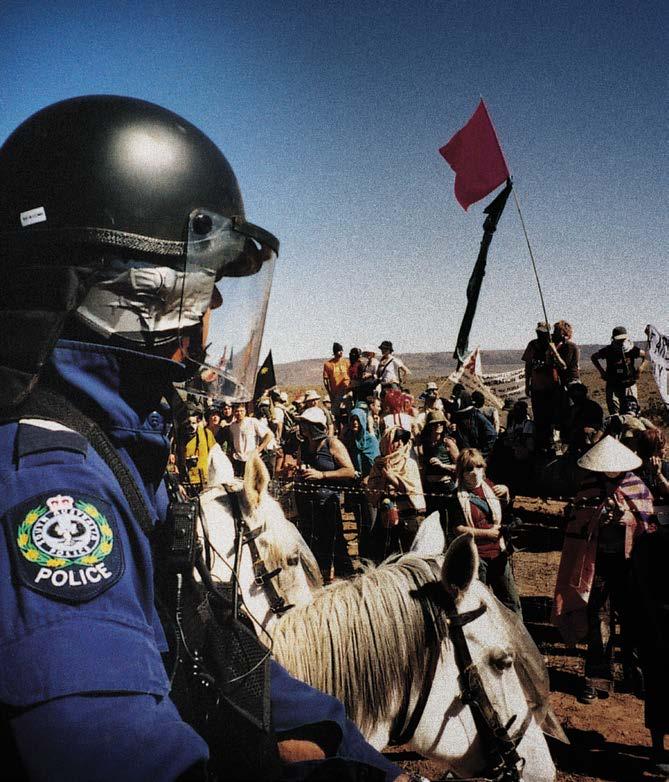
The Police Association holds serious concerns about big-brotherstyle demands on members to supply SAPOL with their private medical information
These demands occur in the context of members staying on police premises such as the Echunga Police Training Reserve The direction to those members is to complete a form RF1231N (Statement of Personal Health & Circumstances).
While this six-page form might appear reminiscent of the 1950s, SAPOL implemented it on September 23, 2024. It offers no exceptions as it insists that employees “MUST provide an answer to ALL questions where tick boxes are provided”
Among the highly intrusive questions are:
• Medical history – seven questions
• Musculoskeletal system – 20 questions
• Neurological system – 12 questions.
• Endocrine and metabolic system –five questions.
• Ear, nose and throat – 11 questions.
• Eyes – six questions
• Skin – five questions
• Blood and lymphatic system –four questions
• Infection – five questions
• Allergy – four questions
• Mental health and trauma –25 questions
• Cancer and/or malignancy –two questions
• Residency/service outside of Australia.
• Defence force history (including reason for discharge).
• Other information
Steve Whetton Assistant Secretary Police Association

This SAPOL disregard for members’ medical privacy is not a first. Just a few years ago, during the COVID-19 era, executive management demanded to know the vaccination status of every member.
A specific direction to any member who answers a question with “yes” is to provide dates and treatment information
Then demanded of the member is that he or she sign the “Declaration”, which also demands a witness signatory With typically officious wording, the declaration reads:
“I acknowledge that questions not correctly or fully answered, or the withholding of relevant information, may lead to action for a breach of Section 26 of the Public Section (Honesty and Accountability) Act 1995, and/or a breach of Regulation 13 of the Police Regulations 2014, and or a breach of the Public Sector Code of Ethics 2015 ” With complete justification, members are extremely concerned about the ramifications of a “yes” answer to such questions as:
• Have you ever consulted or sought treatment from a psychiatrist, psychologist, counsellor or social worker?
• Have you ever been the victim of, or witness to, domestic violence as an adult or child?
• Have you ever witnessed the death of another person?
• Has any family member, friend, or colleague ever been killed, unlawfully detained, assaulted or robbed?
In such a clear case of overreach, the overwhelming onus is on SAPOL itself to answer questions, particularly given the member privacy on which it is intruding. For example:
• Why is SAPOL collecting sensitive personal information?
• What does SAPOL do with the information?
• Where is this information stored and for how long?
• Who can access this information?
• Can a member access and/or seek to correct any of this information.
• Can these records be subject to a court subpoena, or used by SAPOL in workers compensation claims or matters under the Police Complaints and Discipline Act?
A response from SAPOL, in a letter to the Police Association (May 9, 2025), is unlikely to give members any comfort It reads:
“Information is collected to assess any risk associated with an employee residing overnight on SAPOL premises and is used by EAS (Employee Assistance Section) health professionals to assess any risks . Medical records can be subject to subpoenas and are dealt with in accordance with General Order Disclosure compliance and subpoena management , including whether SAPOL is legally compelled to release the subpoenaed information ”
This SAPOL response simply creates more questions What risk or risks? Which EAS health professionals? Who? What are their qualifications? How do they go about their assessments? Who judges their assessments?
This SAPOL disregard for members’ medical privacy is not a first. Just a few years ago, during the COVID-19 era, executive management demanded to know the vaccination status of every member
It would be worth avoiding a repeat of the discontent of that time To do that, SAPOL must this time fully explain its justification, and moral right, to demand of members their private medical information
It must explain its intentions as to the use of that information in workers compensation claims or the complaintsinvestigation process under the Police Complaints and Discipline Act



Long shifts, irregular hours, highstress situations and too much fast or processed food It can all take a physical toll Recently, indeed, we have seen more liver cirrhosis in liver overloaded with fat, and not from the usual suspect – alcohol
Fatty liver disease affects millions of people who are overweight and might not realize they have the precursor to this potentially lifethreatening disease . It presents as either fatty liver or non-alcoholic fatty liver disease (NAFLD)
The liver is a vital organ that performs hundreds of functions In particular, it filters toxins, processes nutrients and aids digestion
Some fat is normal but, if there is more than five to 10 per cent fat by weight, it might start to damage the normal function of the liver cells
Most of us are aware of the direct damage to the liver from alcohol but the accumulation of fat that is toxic can occur when you don’t drink at all. It is more closely related to diet, lifestyle and metabolic conditions . NAFLD is the more common form of chronic liver disease worldwide
The severity of NAFLD ranges from a simple accumulation of fat known just as “fatty liver”, or steatosis, which is fat build-up without any irritation, inflammation or damage
In some cases, this can progress to a variation known as non-alcoholic steatohepatitis (NASH) The inflammation causes cell damage and liver scarring and, as that worsens, it is associated with cirrhosis and the chronic inflammation can cause liver cancer
It is known as a silent disease because it typically causes no symptoms in its early stages. Serious symptoms, like jaundice or swelling of the abdomen are late changes and only appear when the liver damage is advanced.
NAFLD often develops silently Many people have no symptoms until the disease has significantly advanced, which is why early detection and prevention are so important The leading cause of NAFLD is obesity with excess fat especially around the abdomen
Cholesterol on its own can also be a cause, especially when associated with high triglycerides (fatty sugars). Also unhelpful is a poor diet, high in processed foods, sugar and saturated fats. This is made worse with a sedentary lifestyle Also linked to NAFLD is sleep apnoea which is associated with obesity
Police work often makes these risk factors more pronounced Long hours, rotating shifts, high stress, limited time for healthful eating and exercise can all increase susceptibility
It is known as a silent disease because it typically causes no symptoms in its early stages Serious symptoms, like jaundice or swelling of the abdomen are late changes and only appear when the liver damage is advanced.
A diagnosis usually starts with a routine blood test showing abnormal
liver function A blood test showing the liver enzymes (ALT and AST) might suggest liver inflammation Specific investigations of the liver can include CT or MRI The fatty liver might initially be an incidental finding when investigating something else
Cirrhosis, whether caused by alcohol or fatty infiltration, has all the same complications affecting the liver’s ability to do its job. The ultimate fate of a cirrhotic liver is lethal unless perhaps a liver transplant is available, hence every effort should be made to avoid cirrhosis in the first place
The good news is that all of this is preventable and usually reversible through lifestyle changes
First, maintaining a healthy bodyweight means there is no need for the body to find a place to store excess fat If there is concern about fatty build up around the liver, a five to 10 per cent reduction in bodyweight will make a significant difference to fat storage.
Continued page


Toyota claims its new-generation LandCruiser Prado delivers improved drivability, off-road capability, safety, technology and functionality. Built on a stiffer platform (shared with 300-Series Cruiser), new Prado is longer and wider overall
It’s also 200-odd kilos heavier and more expensive Its five variants (GX, GXL, VX, Altitude and Kakadu) are priced between $72,500 and $99,990 (plus ORC)
There’s the big, square, athletic body which sports a long, flat bonnet, flat roofline, bulging wheel arches and a handy flip-up rear window in the tailgate Prado offers five- or seven-seat options (model dependent). The seven-seat eats into its cargo flexibility. To accommodate new Prado’s mild-hybrid battery, third-row seats no longer fold flat into the floor reducing cargo depth substantially
Second-row 60/40 seats are comfortable with plenty of legroom Third-row seats can fit adults for a short trip but, when in use, there’s nowhere to stash the cargo blind (if fitted)
Driving mid-spec VX is a rewarding experience. The heated and cooled eightway powered driver’s seat (with twostage memory) and power-adjustable steering provide a commanding driving position and good visibility
Big side mirrors, front and rear parking sensors and on-demand 360-degree camera system cover all blind spots The dash layout, which incorporates soft materials, is functional to use A clear 12 3-inch centre touchscreen is reasonably easy to navigate. A second 12 .3-inch instrument screen provides plenty of info, much of it accessed by steering-wheel buttons.
Although the new 48-volt mildhybrid system doesn’t provide additional
Model/price
Toyota Prado VX $87,400 (plus ORC)
Standard features
12 3-inch touchscreen with wireless Apple CarPlay and Android Auto, embedded and cloud-based satellite navigation, leather seats, refrigerated console cool box, adaptive variable suspension, multi-terrain monitor, 14-speaker premium JBL audio system
Safety
Nine airbags, driver monitor, adaptive high-beam, tyre-pressure monitor, multi-terrain monitor, full suite of crash-avoidance and driver-assistance technologies
Fuel
Diesel, 110-litre tank, requires AdBlue 17 4-litre tank, 7 6 litres/100km (combined test)
Weights/towing
Kerb weight 2,570kg, GVM 3,180, GCM 6,600kg, towing up to 3,500kg
Cargo
From 182 to 1,829 litres .
power, Toyota claims it improves drivability and economy With outputs of 150kW and 500Nm, its 2 8-litre fourcylinder diesel is still eclipsed by (rival) Ford Everest’s optional V6 diesel
However, VX offers plenty of power in every situation It’s smooth and generally quiet with the engine only really heard at high revs . The new eight-speed auto goes about its business with a minimum of fuss and provides a better spread of ratios particularly on hills and when towing
This new Prado delivers a firmer ride with infinitely better body control particularly on rough and corrugated surfaces New electric power steering feels superior and bigger brakes improve stopping power
Prado has plenty of off-road credibility with good ground clearance, plenty of wheel articulation and a locking Torsen centre LSD differential. A rear diff-lock is only available in off-road-focused Altitude.

DESIGN AND FUNCTION
The new Mazda 10-model, all-hybrid CX-80 seven-seat SUV, comes in four trim levels and a choice of three different powertrains.
Entry CX-80 Pure kicks off from $54,950 (plus ORC). It’s fitted with a 3 . 3-litre turbocharged six-cylinder petrol engine coupled to a 48-volt mildhybrid system
Those opting for Touring, GT and Azami trim get a choice of the petrol/ mild-hybrid six, a 3 3-litre turbo diesel six with mild-hybrid boost or a 2 5-litre (naturally aspirated) petrol PHEV (plug-in-hybrid) variant
All models feature a paddle-shifter equipped eight-speed automatic transmission driving all four wheels through Mazda’s rear-biased i-Activ all-wheel-drive system.
CX-80 has a bold appearance featuring a high curved roofline and long bonnet to accommodate the straight-six petrol and diesel engines
Inside is seating for seven in three seat rows with the option of two captains’ chairs (centre row) in top-spec Azami All but entry Pure feature leather trim, heated and power-adjustable front seats with two-position memory for the driver’s, wireless phone charger and a powered tailgate. Centre-row 60/40 seats offer slide and recline functionality. Third row 50/50 seats, which are best suited to kids, fold flat to the floor From each
seating position is access to an air conditioning vent, bottle storage and USB charging point
The generous cargo space varies between 258 and 1,971 litres depending on seat configuration. (Braked) towing capacity of 2,500kg enables towing of medium caravans and boats.
GT PHEV has a comfortable driving position thanks to its 10-way powered seat and power-adjustable steering column A 12 3-inch instrument cluster and large head-up display also feature Mazda has included comprehensive easy-to-use controls for the ventilation system along with the ability to navigate the central 12 . 3-inch infotainment screen via a rotary dial and intuitive buttons on the console . A stubby electronic gear shifter, auto park brake and drive-mode buttons (Sport, Off-road and Towing) also feature on the console
On paper the PHEV punches out the most power of the bunch with 241kW With a full battery, it’s good for up to 65km of electric-only driving after which the petrol motor applies the required assistance It offers decent acceleration and generally quiet operation but engine noise can be a little intrusive under harsh acceleration. Given its size and weight (2,267kg), GT PHEV offers good ride characteristics and is reasonably agile in corners
Price
$54,950 (Pure petrol) to $87,200 (Azami 2 . 5L PHEV) plus ORC. PHEV models cost between $11,000 and $13,000 more than their equivalent petrol and diesel variants
Engines
Turbocharged 3 3-litre straightsix petrol mild-hybrid (209kW/450Nm), turbocharged 3 3-litre straight-six diesel mild hybrid (187kW/550Nm), PHEV 2 . 5-litre petrol four with electric motor and 17. 8kWh battery (241kW/500Nm).
Equipment
All models come with head-up display, dual or tri-zone climate control, 10 5-inch or 12 3-inch infotainment screens with DAB+ radio, Apple CarPlay and Android Auto (wireless and USB), satellite navigation, Mazda-connected services with smart phone app Safety
Ten airbags, 360-degree monitor, front and rear parking sensors, reverse camera, tyre-pressure monitor and a comprehensive list of crash-avoidance and driver-assistance technologies Fuel economy
3 3-litre petrol 8 4 litres/100km, 3 3-litre diesel 5 2 litres/100km, 2 5 PHEV 2 7 litres/100km (claimed figures using combined test)

Buying a home is a huge milestone, but the cost of deposits, fees and other expenses can make it feel out of reach Fortunately, there are options to help buyers, particularly first-home buyers, get a foot on the property ladder From government grants to stamp duty, and options to avoid paying a hefty deposit, we’ve outlined some of the ways you can make home ownership more affordable and achievable.
South Australian property market in 2025
If you’re considering getting into the SA property market, 2025 could be your year Despite house prices sitting at a record high, prices are only predicted to rise by a small 2% this year before a predicted surge in 2026, potentially reaching 3 6%
First home owner grant
This is a one-off payment of up to $15,000 for eligible first homeowners from the South Australian government To be eligible, you must be buying or building a new residential property which will be used as a principal place of residence in South Australia As per the Revenue SA website, the first home owner grant applies to:
• The purchase or construction of a new home.
• An off-the-plan apartment.
• A substantially renovated home.
• A comprehensive building contract or a contract to build a home
• Owner builders
• Knock-down rebuild projects (for contracts entered into prior to February 13, 2025)
You can apply for the first home owner grant anytime within the first 12 months of purchasing your home
When you buy a property or have ownership transferred to you, you will have to pay stamp duty. Stamp duty is a tax calculated based on property value and is paid at the time of settlement
As a first-home buyer in South Australia, you may be entitled to stamp duty relief which is not means tested The amount of relief you receive, and your eligibility will depend on the date you entered a contract If you entered your contract on or after June 6, 2024, full stamp duty relief is available regardless of your property value. Stamp duty relief is available for a new home, an off-plan apartment and vacant land to build your home on You can visit revenuesa.gov.au to find out if you’re eligible and for current conditions
Family guarantee
A family guarantee (also known as a family pledge) may help first home buyers get started with a smaller deposit. Guarantors can be immediate family members such as parents who have enough equity in their home
If you entered your contract on or after June 6, 2024, full stamp duty relief is available regardless of your property value.
and can offer part of this equity as security for your loan
The equity in their property can help make up for any shortfall in saving the minimum 20% deposit usually required to avoid lenders mortgage insurance (LMI) which could save you thousands of dollars or increase your borrowing power
LMI is another option to consider if you do not have the 20% deposit This is insurance a lender takes out to protect itself against any loss that might be incurred if you are unable to repay your loan It’s a one-off additional payment that’s calculated based on the size of your deposit and how much you can borrow.
Buying or selling a home?


Don't let your biggest investment become your biggest headache.
Whether you’re buying your first home, selling an investment, or upgrading the family residence, conveyancing can be more complex than it seems. Avoid costly mistakes. One missed detail in the contract or a poorly handled Form 1 can have serious financial consequences.
Why TGB Lawyers?
☑ Trusted by police and first responders for over 50 years
☑ Expert property and conveyancing lawyers - not just document processors
☑ Clear advice, no legal jargon
☑ Offices across SA and interstate
TGB offers a free initial 30 minute appointment about your residential contract and/or Form 1 and a 10% fee discount for PASA members, their families and retired members.
Scan the code to send us an email and one of our team members will be in touch soon!


Leading Australian law firm Tindall Gask Bentley is the preferred legal services provider of PASA. pasaconveyancing@tgb.com.au
Sam Michele Associate
Tindall Gask Bentley Lawyers

Buying or selling a property can be one of the biggest financial transactions a person will ever make So, it’s surprising how many people rush through the legal process, unaware of the risks that can arise from seemingly minor oversights
As a lawyer practising in property law, I’ve seen how easily things can go wrong when contracts aren’t reviewed carefully, or compliance is taken for granted. Two recent examples highlight just how critical good conveyancing advice can be.
The case of the missing $100,000
A family attended a Saturday morning auction, excited to bid on their dream home After some tense backand-forth, they secured the winning bid at $950,000 Cheers and congratulations followed, and all parties sat down to sign the contract
Later, during the conveyancing process, a startling discovery was made: the signed contract of sale listed the purchase price as $850,000 – not the agreed $950,000 Somehow, a version of the contract with an earlier draft price had been signed by all parties No one had picked up the discrepancy at the time
And the kicker? Once signed, the contract could have been considered to be legally binding at the recorded purchase price – $100,000 less than what the seller thought they had sold the property for.
Both buyer and seller had to seek legal advice and negotiate an outcome to avoid the threat of a drawn-out legal battle and extensive costs
A professional who is diligent, detail-oriented, and present during the signing process can help catch mistakes which might otherwise become expensive –and legally binding – errors.
So, who’s responsible in situations like this? While the parties bear some responsibility, this scenario also illustrates why it’s so important for conveyancers to carefully review contracts before they’re signed
A professional who is diligent, detailoriented, and present during the signing process can help catch mistakes which might otherwise become expensive – and legally binding – errors.
In another case, a couple agreed to purchase a property after a quick inspection But after instructing us to act on their behalf, we began to uncover some red flags
The property was in worse condition than they had realized but, more important, the Form 1 – a key disclosure document required under South Australian law – was incomplete A critical annexure was missing.
Our advice? Request a new, fully completed Form 1.
Why does this matter? Because under the Land and Business (Sale and Conveyancing) Act 1994 (SA), when a fresh Form 1 is issued, it resets the buyer’s statutory two-business-day cooling-off period
This gave our clients a chance to step back, reassess, and ultimately withdraw from a deal that could have been a financial trap
This case underscores the importance of full and accurate documentation . The Form 1 isn’t just a formality – it’s a legal requirement designed to protect buyers by disclosing relevant details about the property, such as
encumbrances, easements, or zoning changes When something’s missing, the risks can be significant
The bigger picture
These examples share a common thread: in both situations, simple oversights could have had major consequences The role of a conveyancer or property lawyer isn’t just to tick boxes and file paperwork – it’s to act as a safety net for buyers and sellers navigating complex, high-stakes transactions. If you’re buying or selling property, don’t cut corners Read every document carefully or, better yet, have a legal professional do it for you
Ask questions And, most important, don’t be afraid to slow down and get advice The costs of haste and inattention can far outweigh the price of good legal guidance
In property, as in life, the fine print matters.
At TGB Lawyers, our experienced property law team can guide you through every stage of the conveyancing process – protecting your interests, minimizing your risks, and making sure nothing slips through the cracks. We're here to help, because property deals should never be left to chance.
Jahan Kalantar Pan Macmillan
For fans of The Next Conversation comes an insider's view of the Australian legal system, packed with hilarious true stories and useful life lessons.
As a criminal defence lawyer, Jahan Kalantar, has helped people in their most desperate hours, from hardened jailbirds to accidental offenders, disadvantaged delinquents to undeserving scapegoats
Along the way, Jahan has learned that it's not always the smartest person in the room who wins the day There are other, more important skills, like being able to ask for help, stick to your values, listen without judgement, know when to be sceptical, and apologize like you mean it
In Talk Your Way Out of Trouble, Jahan shares his insights through laugh-out-loud funny stories of his own triumphs and blunders, as well as those of his clients. Full of humour and heart, this is an insider's look at how the law really works – and why its lessons are vital for everyone, in and out of the courtroom.
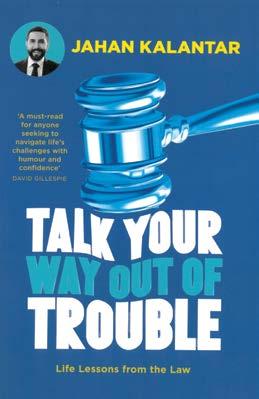
Win a book, an in-season movie pass or a DVD!
For your chance to win a book, an in-season movie pass (courtesy of Wallis Cinemas), a movie pass to Caught Stealing (courtesy of Sony Pictures Releasing), or a DVD, send your name, phone number, work location and despatch number, along with your choice of book, movie and/or DVD to giveaways@pj.asn.au
Daniel Reynaud Signs Publishing
This is the legendary true story of William McKenzie, whose tireless work as a Salvation Army chaplain among the Anzacs in World War I earned him the nickname “Fighting Mac”
At the outbreak of war, he was quick to volunteer to serve his country, despite his evangelistic zeal and preaching against the vices many of the soldiers enjoyed.
What makes McKenzie's reputation incredible is that he embodied almost everything that the typical digger loved to hate He railed against booze, brothels, betting and bad language, and ran frequent evangelistic campaigns for the Anzacs
Despite these apparent disadvantages, Fighting Mac was revered by the men of the AIF and became the man who best represented the Anzac ideal
On his return to Australia, and for years after the war, McKenzie was mobbed by admirers wherever he went.
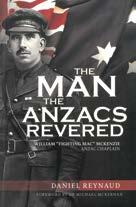
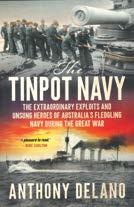
Anthony Delano Allen & Unwin

David Baldacci Pan Macmillan
Charlie Matters' life has always been a fight for survival Orphaned with no prospects, Charlie steals what he needs and lives day-today until he can enlist in the battle against the Germans.
He miraculously emerges unscathed from the Blitz, but there's no telling when the next bomb will fall
Molly Wakefield's dreams of a joyful homecoming are all she's had to hold on to after being evacuated to the countryside five years before But when she finally returns to the city, Molly faces a London changed beyond recognition, and the devastating news that neither of her parents is there
Charlie and Molly's paths converge when they both seek solace at The Book Keep, where they find an unexpected ally and protector in the bookshop's owner, widower Ignatius Oliver.
But the trio's newfound peace is jeopardized as past secrets catch up with them
Just months before the start of World War I, Winston Churchill withdrew the Royal Navy's most formidable ships from the Pacific Australia, with powerful German cruisers in its northern waters, needed its fledgling navy to step up Foreign correspondent and RAN veteran Anthony Delano has uncovered surprising stories from those days and earlier
The rogue captain ready to bombard Brisbane The quick-witted officer who snatched Germany's secret codes . The bold raid on Rabaul and the capture of German colonies across the Pacific. A dangerous marauder blockaded in an African river The courageous volunteers who raided a U-boat haven The battle between HMAS Sydney and the cruiser Emden that might not have been quite the glorious victory it once seemed Captain Guy Gaunt, a boy from Ballarat who became a master of intrigue and espionage The unhappy flagship HMAS Australia and a scandalous mutiny trial
A L Booth Ventura Press
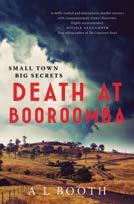
It’s 1915 and Jack O’Rourke has enlisted in the army Just days before embarkation, he saves a stranger from drowning in Sydney Harbour The stranger’s name is Samuel Lomond, a pastoralist from Eden on the NSW South Coast.
When O’Rourke returns from Europe in 1919, wounded and traumatized, he discovers that Lomond has been brutally murdered, and he has inherited Lomond’s property called Booroomba
A neighbour coveting water rights, a struggling newspaper proprietor, a vengeful labourer, a secret affair and two Russian emigres lead Jack right to the heart of a decades-old conspiracy and the truth of what happened to Lomond and why Death at Booroomba reveals a small town hiding big secrets and explores the destructive aftermath of war on those who took part
Cameron Hanes Pan Macmillan
Cameron Hanes shows what it takes to become undeniable
You become the best you can be by learning from others . That is how bowhunter, ultramarathoner and New York Times bestselling author Cameron Hanes approaches each day in his pursuit of greatness
After fighting so hard and reaching your goals, how do you stay on top? In his pursuit for greatness, Hanes has trained with and interviewed track athletes, MMA fighters, NFL Super Bowl champions and experts in other disciplines All of them legends who have earned their names
So what makes them tick? How do they remain undeniable?
Hanes brings together outliers of today – men and women who are experts in their field – to share their unique and motivating perspectives on reaching the pinnacle of success and remaining there


November 6
In a near-future society, The Running Man is the top-rated show on television — a deadly competition where contestants, known as runners, must survive 30 days while being hunted by professional assassins, with every move broadcast to a bloodthirsty public and each day bringing a greater cash reward. Desperate to save his sick daughter, working-class Ben Richards is convinced by the show’s charming but ruthless producer, Dan Killian, to enter the game as a last resort
But Ben’s defiance, instincts, and grit turn him into an unexpected fan favourite — and a threat to the entire system As ratings skyrocket, so does the danger
The Running Man stars Josh Brolin, Michael Cera and Glen Powell

October 16
Four years ago, 13-year-old Finn killed his abductor, escaped, and became the sole survivor of The Grabber. But true evil transcends death – and the phone is ringing again.
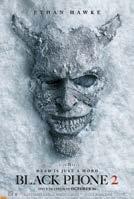
As Finn, now 17, struggles with life after his captivity, the headstrong 15-yearold Gwen begins receiving calls in her dreams from the black phone and seeing disturbing visions of three boys being stalked at a winter camp known as Alpine Lake
Determined to solve the mystery and end the torment for both her and her brother, Gwen persuades Finn to visit the camp during a winter storm.
There, she uncovers a shattering intersection between The Grabber and her own family’s history.
The Black Phone 2 stars Ethan Hawke, Jeremy Davies and Madeleine McGraw
Now You See Me: Now You Don’t
November 13
A diamond heist reunites retired Horsemen illusionists with new performers Greenblatt, Smith and Sessa as they target dangerous criminals
Now You See Me: Now You Don’t stars Jesse Eisenberg, Woody Harrelson and Isla Fisher. The Black Phone 2


November 20
Elphaba, now demonized as The Wicked Witch of the West, lives in exile, hidden within the Ozian forest while continuing her fight for the freedom of Oz’s silenced animals and desperately trying to expose the truth she knows about The Wizard Glinda, meanwhile, has become the glamorous symbol of goodness for all of Oz, living at the palace in Emerald City and revelling in the perks of fame and popularity
As an angry mob rises against the Wicked Witch, Glinda and Elphaba will need to come together one final time.
Wicked: for Good stars Cynthia Erivo, Ariana Grande and Jeff Goldblum.
August 28 #CaughtStealingMovie
Hank Thompson (Austin Butler) was a high-school baseball phenom who can’t play anymore, but everything else is going okay
He’s got a great girl (Zoë Kravitz), tends bar at a New York dive, and his favourite team is making an underdog run at the pennant
When his punk-rock neighbour Russ (Matt Smith) asks him to take care of his cat for a few days, Hank suddenly finds himself caught in the middle of a motley crew of threatening gangsters
They all want a piece of him; the problem is he has no idea why
As Hank attempts to evade their ever-tightening grip, he’s got to use all his hustle to stay alive long enough to find out…
Caught Stealing is directed by Academy Award nominee Darren Aronofsky, screenplay by Charlie Huston, based on his book of the same name. The film stars Austin Butler, Regina King, Zoë Kravitz, Matt Smith, Liev Schreiber, Vincent D’Onofrio, Griffin Dunne, Benito
A Martínez Ocasio, and Carol Kane.
Watch the trailer on YouTube

The group life insurance cover provided by the Police Association covers members 24 hours a day, seven days a week, regardless of the cause of death while members remain in Australia
The insurer may specify certain geographical exclusions and restrictions on the coverage due to increased risk
If members travel to areas of the world considered to be at increased risk, an increased insurance premium may apply or coverage may cease entirely
Members who intend to go overseas for six months or longer, or who are travelling to or via a war zone are advised to contact the association beforehand to confirm whether or not coverage will be affected.
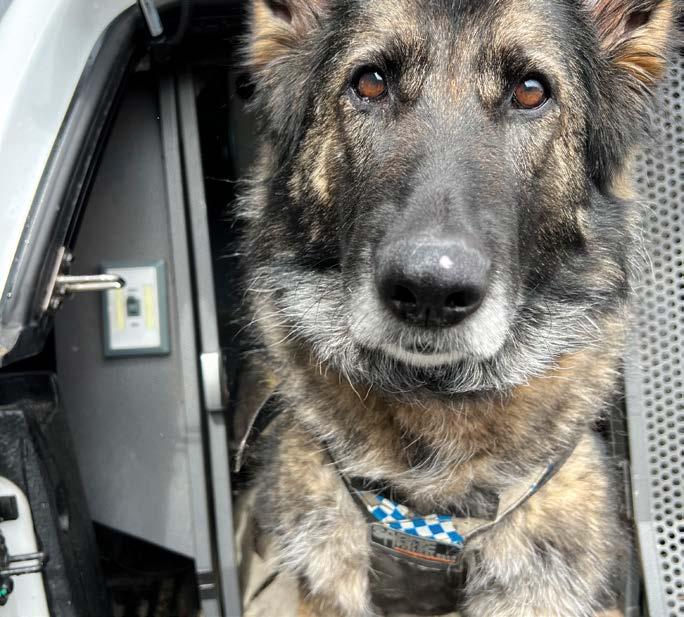
Retired Police Dogs SA is dedicated to supporting the welfare of retired SAPOL police dogs.
Due to the nature of their work and high rate of pre-existing injuries, retired police dogs are ineligible for pet insurance. With some facing significant medical expenses after retirement, their families often struggle to bear the cost. Your support helps ease that financial burden and ensure these loyal animals receive the best possible care. DONATE NOW



Inspector Ellis
280 minutes, $34 95
DCI Ellis is the last hope for failing investigations
Armed with integrity and razor-sharp instincts, she takes over challenging cases across England’s rural north, often facing resistance from the local police
But her unflappable demeanour disguises a deepseated sympathy for the victims, fuelled by her complicated past and unrelenting drive for justice
Ellis remains focused on her work as a first-class murder detective, driven by a determination for justice and a deep well of compassion for those who need it.
300 minutes, $34.95
A year after their lives collided on an outback road, retired Australian detective Jack Darby (Bryan Brown) and English widow Joan Kirkhope (Greta Scacchi) have forged an important and intimate friendship amid shared investigative adventures
But Jack’s story has only just begun He’s determined to clear his name of the unexplained cloud hanging over his career and find the one person he believes can reveal the truth about the night that changed his life
Despite the potential danger, or perhaps because of it, Joan insists on helping Jack with his quest. But Jack and Joan soon realize they are not alone on this journey and their search becomes a race against time.
Can they uncover the truth after all these years? Or will their search for answers only unearth more questions?
As they travel through Queensland’s spectacular landscapes solving mysteries along the way, Jack and Joan’s relationship will be tested as they encounter potential new romance and dangerous old rivals
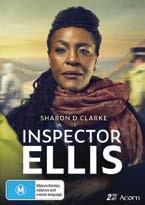
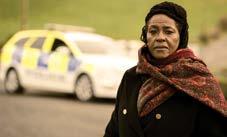

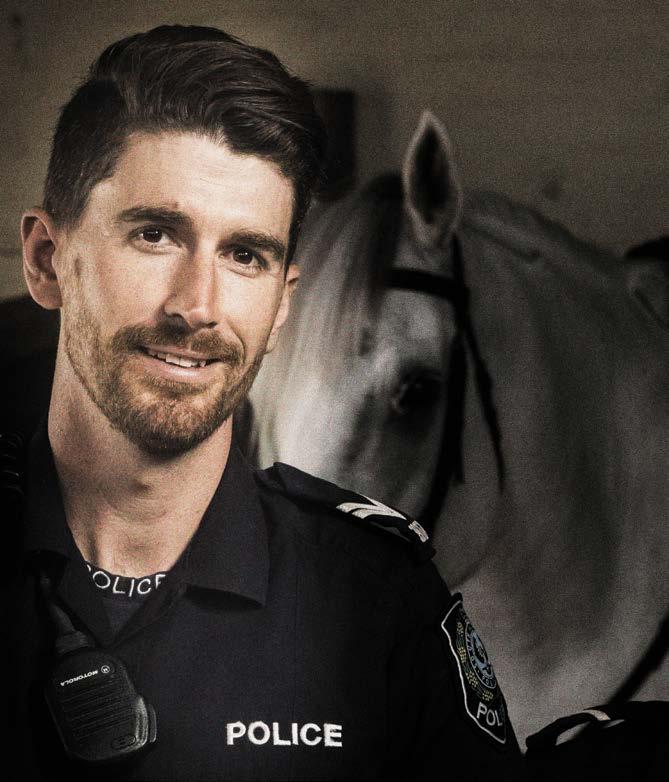
SkyCity Southwest Suite March 15, 2025


4.



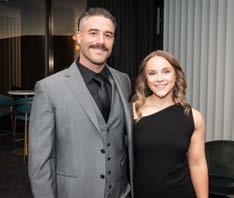


9.






From page 33
The aim is a balanced diet: whole vegetables, fruits, lean proteins, whole grains and healthy fats. Avoid or reduce the intake of sugary drinks, processed snacks, refined carbohydrates and saturated and trans fats.
Around 150 minutes of regular, moderate-intensity exercise per week will teach the liver to metabolize rather than store fats Walking, cycling or strength training all achieve a similar effect Even short bursts of movement during shift breaks alter the way the liver and body handle fats
Increased sugar intake provides extra calories, so the body gets lazy and uses the sugar for energy and stores the fat (sometimes in the liver). Alcohol exacerbates any damage to the liver because of its direct toxic effects.
Treatment options are not about the drugs that are available (because none are specifically recommended) but rather about avoiding any excess fat that can be stored Weight loss remains the cornerstone of management
Generally, we would be looking at 10 per cent weight loss, but every bit helps reduce inflammation and fibrosis Exercise in conjunction with the weight loss diverts fats and improves the way the body deals with energy storage . It means fat is more likely to be metabolized for energy rather than stored in the liver doing damage
NAFLD is a serious but preventable health issue that deserves attention Workplaces which are stressful, and in which routines are often disrupted, make the worker vulnerable to the lifestyle factors that contribute to fatty liver disease
The earlier you act the better the chances of reversing the condition and preserving long-term health. Prioritizing physical fitness, healthful eating, regular screenings and stress management all make a positive difference
From page 37
LMI covers the lender and is a cost that will be passed onto you as a fee You can find out more about LMI on our website at policecu.com.au/LMI.
With a Police Credit Union First Home Buyer Home Loan, you can pay as little as a 5% deposit and take advantage of lower repayments over 40 years, making buying a first home more achievable As a Platinum member, you also save $420 with $0 package fees
Did you know you don’t have to go through a mortgage broker? Save yourself time by speaking directly to us. If you’re still at the budgeting phase or not sure where to start, book in for a free Your Money Plan appointment . Regardless of whether you’re at the start of the journey or need a pre-approval, our relationship managers would love
to chat Contact your local Platinum relationship managers Glenn Lewis on 0421 243 741 or Ryan Mountford on 0437 286 804 or e-mail platinum@ policecu.com.au.
Check out our First Home Owner guide available on our website If you’re crunching the numbers, our online calculators are useful tools, particularly our “How Much Can I Borrow” and “Stamp Duty Calculator”
Once you’ve found a property or suburb you love, ask us for a free property report which will include recent sales, other sales in the area and more. Visit policecu.com.au to find out more about our First Home Buyer Loans or call us on 1 300 131 844.
Police Credit Union Ltd (PCU) ABN 30 087 651 205 AFSL/Australian Credit Licence 238991. Terms, conditions, fees, charges, lending and membership criteria apply. Full details upon request. All information is correct as at 07/05/2025 and is subject to change. PCU reserves the right to withdraw offers or amend product features at any time. Information provided in this article is designed to be a guide only and was believed to be correct at time of publication and derived from various media/ government sources. In some cases, information has been provided to us by third parties and while that information is believed to be accurate and reliable, its accuracy is not guaranteed in any way. Any opinions expressed constitute our views at the time of issue and are subject to change. Neither PCU, nor its employees or directors give any warranty of accuracy or accept responsibility for any loss or liability incurred by you in respect of any error, omission or misrepresentation in this article.
IMPORTANT: PCU does not give financial planning advice. PCU only gives advice in relation to basic deposit products (including term deposits), non-cash payment facilities, general insurance products and credit products which are issued or distributed by PCU itself. Any advice given is based on information you have given PCU and information PCU already holds about you when the advice is given (e.g. your PCU account information). You must ensure the information you give PCU is accurate and complete. If it is not, the advice may be based on inaccurate or incomplete information about your objectives, financial situation or needs. You must therefore assess whether it is appropriate. Please consider your circumstances before deciding if the product or advice is right for you. Property reports are provided by CoreLogic Asia Pacific Pty Ltd ABN 67 087 759 171. These reports should be used as a guide only. Whilst every effort has been made to ensure the accuracy of this report, the results should be used as an indication only. Information is subject to change. Police Credit Union accepts no responsibility for the accuracy and completeness of information provided by CoreLogic or the aforementioned state governments.


1.
2.
3.
4. Noah Hubner-booth and Caitlin Corrigan.
5. Jai Dahm, James Hick and Kye Luscombe.
6. Dan and Dana McKee.
7. Amanda Erbsland and Jarryd Erbsland.








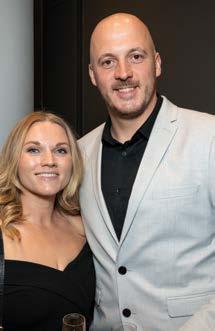









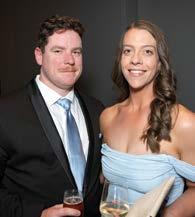

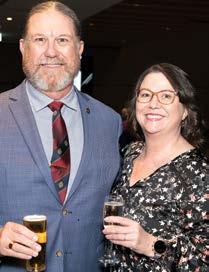






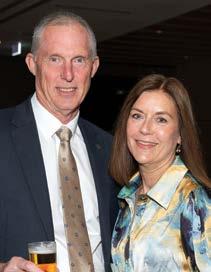
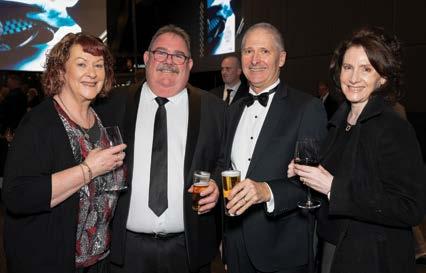



For the full version of The Last Shift, go to PASAweb at www.pasa.asn.au
Dave Bacchus
Jacki Hatcher
Neil Hodgson
Jamie Lewcock
Stu MacIntyre
Bob Muskee
Lenae Prior
Mark Smith
Alan Wallace
Dave Bacchus
Media Section
34 years’ service Last Day: 02 .02 . 25
Comments…
“I have taken a position in environmental compliance with the Hills and Fleurieu Landscape Board
“Overall, policing has served me well and I have seen a lot of change since joining in 1991 I was very fortunate to spend the majority of my career in the Water Operations Unit (28 years), where I had the privilege of diving in spectacular locations, crewing police vessels throughout the state and forming many lifelong friendships
“I spent the last year of my career in police media, and I thank the hardworking staff there for their patience and support
“In the media role I delved deeply into the higher level and often traumatic tasks that the commercial media were most interested in
“Sadly, policing is often a thankless task, but I will always be grateful to every member, sworn and unsworn, working tirelessly to maintain the thin blue line. ”
Lenae Prior
Policy and Training Unit
18 years’ service Last Day: 05 04 25
Comments…
“I have been on special leave without pay from SAPOL since August 2023 undertaking the role of project leader of a statewide programme with another organization. I was due to
return from SLWOP at the end of June 2025.
“However, after very careful consideration, I have made the very difficult decision not to return to policing It saddens me as, at its heart, I still love policing and all the work types it involves But the current culture of SAPOL is no longer one that I feel aligns with my values
“I have found employment with the new Adelaide University which I feel harnesses the skills I've developed through my police career
“I thank the Police Association for the support it provides to all noncommissioned officers in accessing their work rights. I have always found the association open, approachable and supportive and, having worked in other agencies, value the strength of its representation of staff ”

Band of the SA Police
29 years’ service Last Day: 11 04 25
Comments…
“I thank the association for the services that have been provided and bringing the members of the band into the same pay scales as the rest of SAPOL around 2000
This remuneration proved extremely helpful for all of us in the band at that time.
“I have had a great career in the band and have been privileged to work with some amazing musicians. I hope that we have been able to make a difference in some young people's eyes with our school presentations, as well as bringing some joy and fun to older audiences
“Unfortunately, these kinds of results can never be measured the same as other statistics ”
Senior Constable 1C
Mark Smith
Traffic Training Team
27 years’ service Last Day: 07.06. 25
Comments…
“After 30 years, it is time to hang up the black boots and put on the farm boots
“I thank every single one of you who was there with me on this amazing ride known as policing
“To all those still fighting the fight: hang in there and take a moment every now and then to appreciate the good times ”
Detective Senior Sergeant 1C
Stu Macintyre
Port Lincoln CIB
39 years’ service Last Day: 02 07 25
Comments…
“I thank the association for its hard work and assistance to members during my 39 years of policing
“I leave with genuine appreciation for a career that has provided me with so many good memories and the satisfaction of having made a positive difference to the lives of many in the community who are so dependent on our assistance. ”
Neil Hodgson
EMR
36 years’ service Last Day: 02 .05. 25
Comments…
“Congratulations to Wade Burns on his recent re-election The association is in great hands with him at the helm
“The last 36-and-a-half years with SAPOL has been a marathon not a sprint and the time has come to venture into the sunset and allow others to take up the fight ”
Senior Constable
William “Allan” Wallace
Public Engagement Unit
19 years' service Last Day: 02 07 25
Comments…
“I began my career at Port Adelaide, later transferring to Hills Fleurieu, then Transit Services Branch, followed by a short time in Intelligence and, finally, the Public Engagement Unit at PHQ
“Throughout this journey, I’ve had the pleasure of working alongside many dedicated and inspiring colleagues, forming friendships and memories I will always cherish.
“Thank you to everyone who has been part of my career I wish you all the very best Stay safe and take care ”
Bob Muskee
Murray Bridge CIB
48 years' service Last Day: 01 07 25
Comments…
“After having served 48 years in SAPOL I have made the decision to retire.
“I thank the Police Association for all that it has done for not only myself but association members in general. ”

HR Operations
44 years' service Last Day: 02 .07. 25
Comments…
“Thank you to all of the Police Association committee and staff over the years, for the massive milestones that have been achieved in policing in SA, in particular to the health, safety, welfare, equipment, pay and conditions for all SA police officers
“Life has thrown me some curve balls over the past nearly 44 years of my police career
“I have made some lifelong friends from both sworn and non-sworn members, and I have lost several in tragic circumstances too. The camaraderie and mateship in this job is what keeps you going through the thick and the thin
“But this has not put a dampener on how I have felt about being a copper and the role I have played in serving the South Australian community and my fellow police officers I am satisfied I have played my part to the best of my abilities, and for that I am so very proud and grateful
“Police Association – keep the pressure on, keep pushing those boundaries and stay true to your loyal membership. This is how the battles have been won. ”

The Police Association Members Buying Guide offers members and their families massive exclusive discounts on a wide range of goods and services. The easiest way to access all the discount codes is to join the private Facebook Group at facebook.com/groups/membersBuyingGuide


